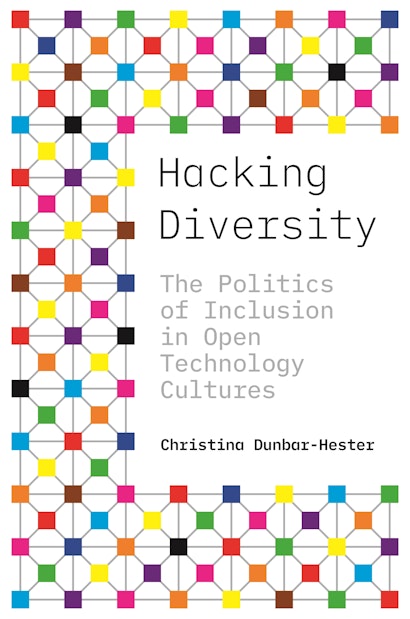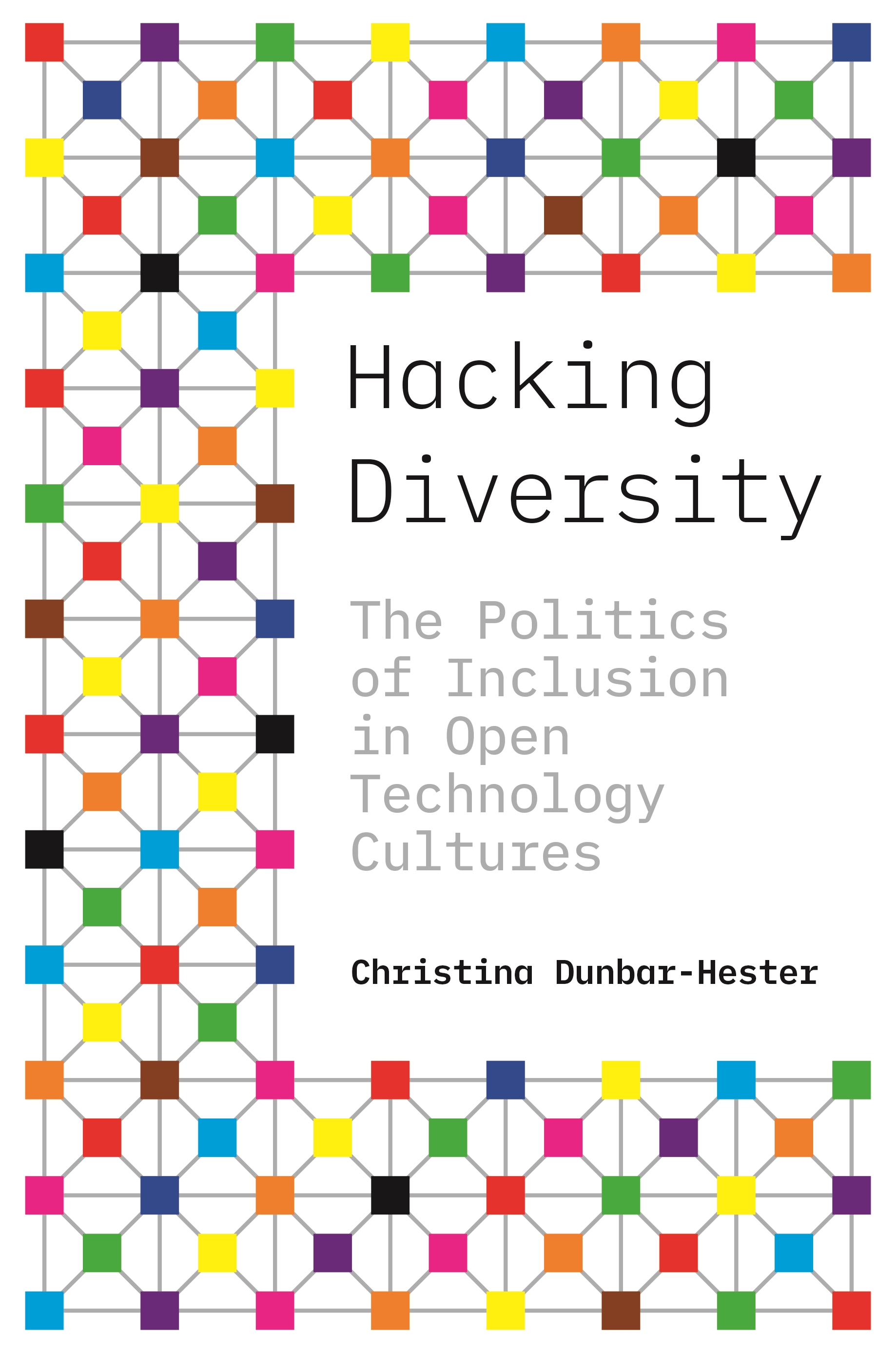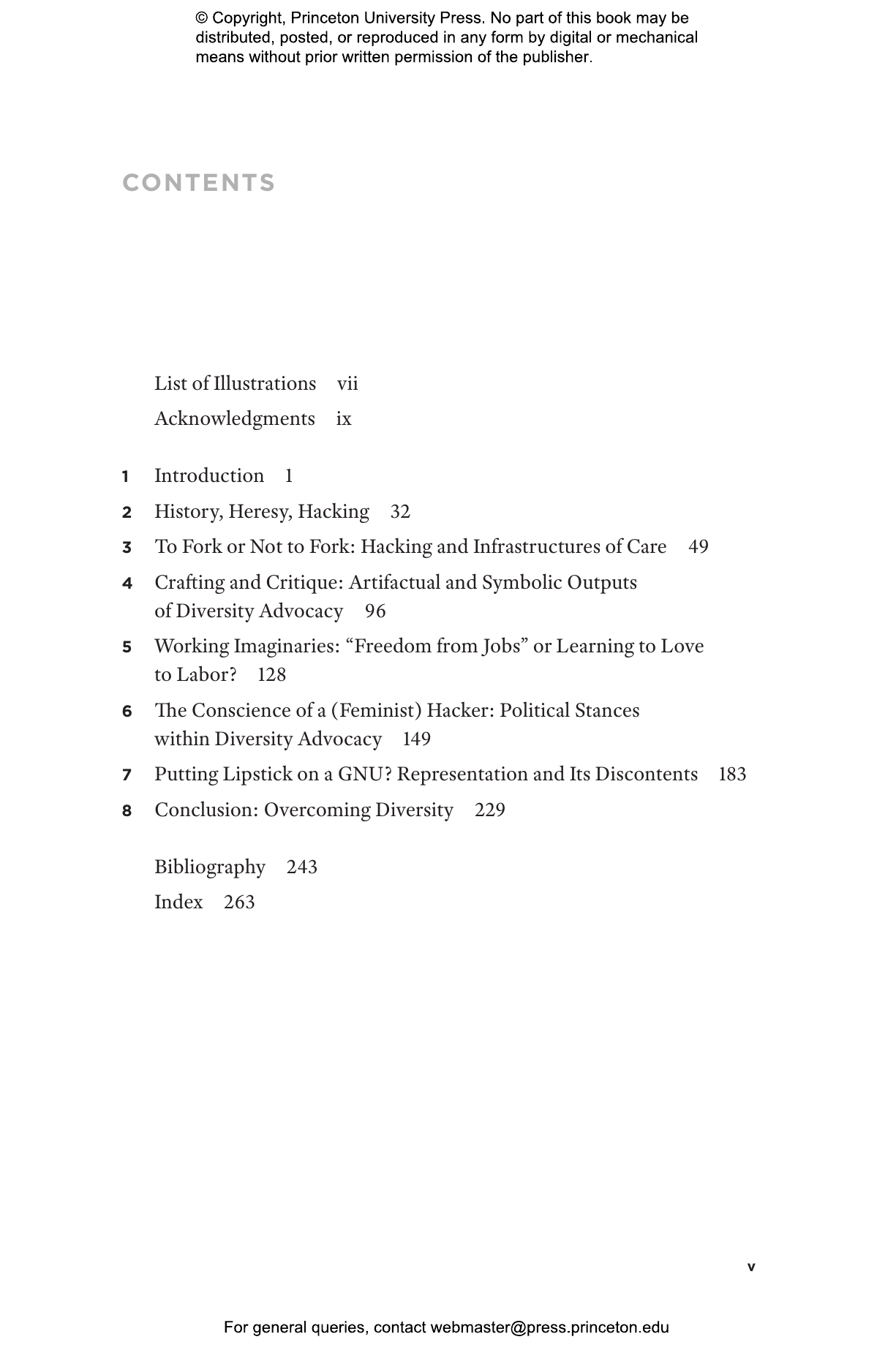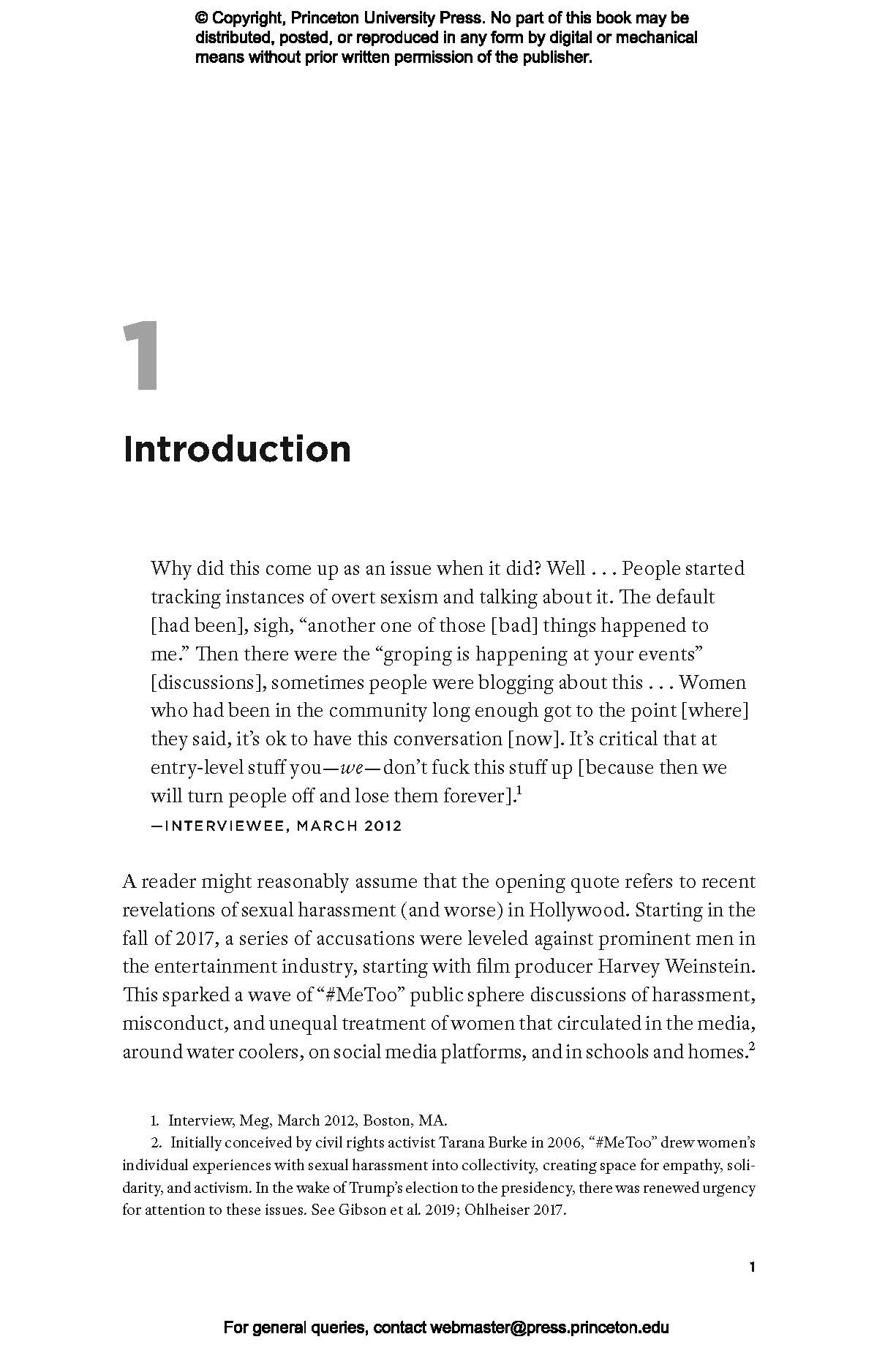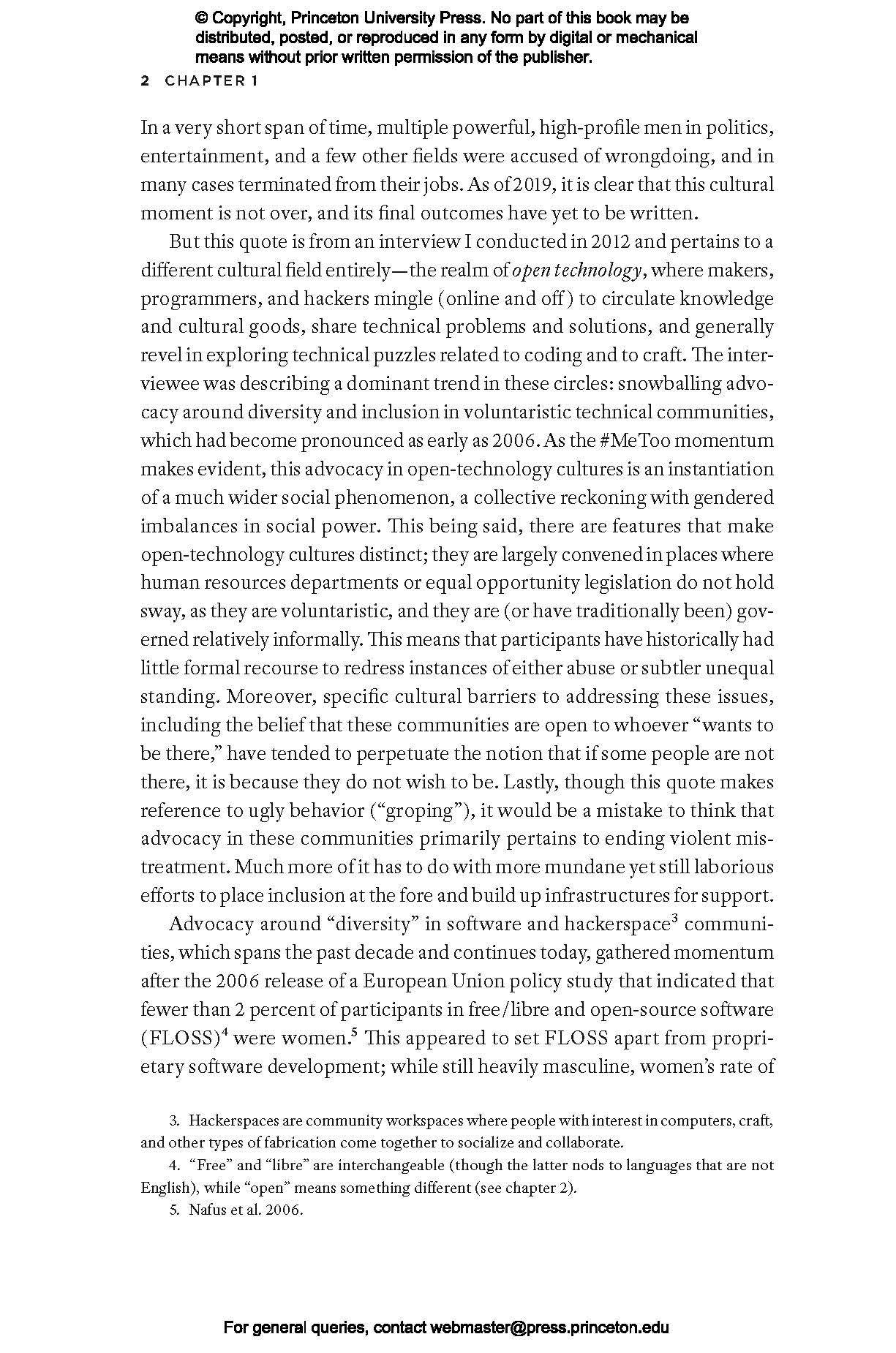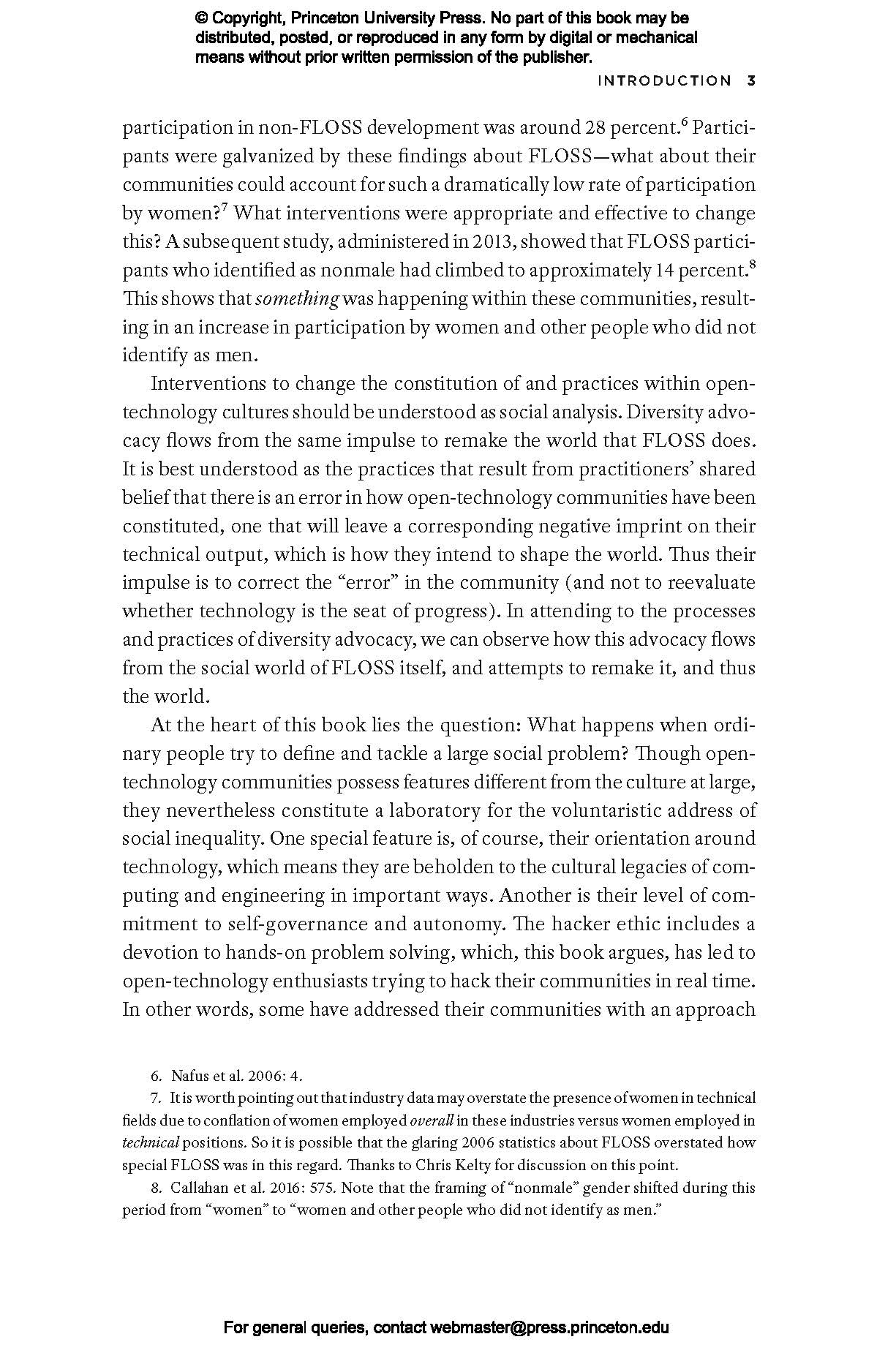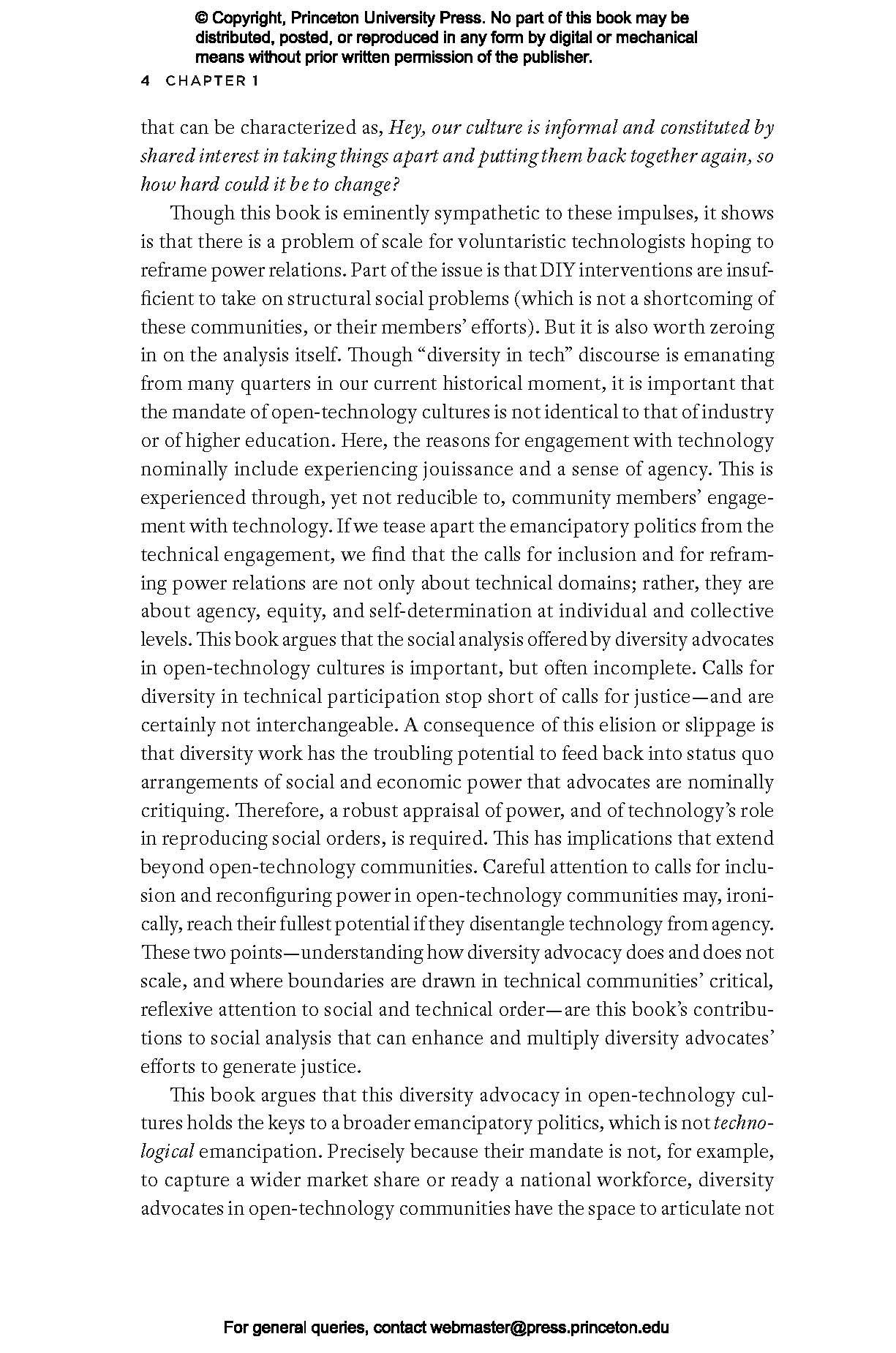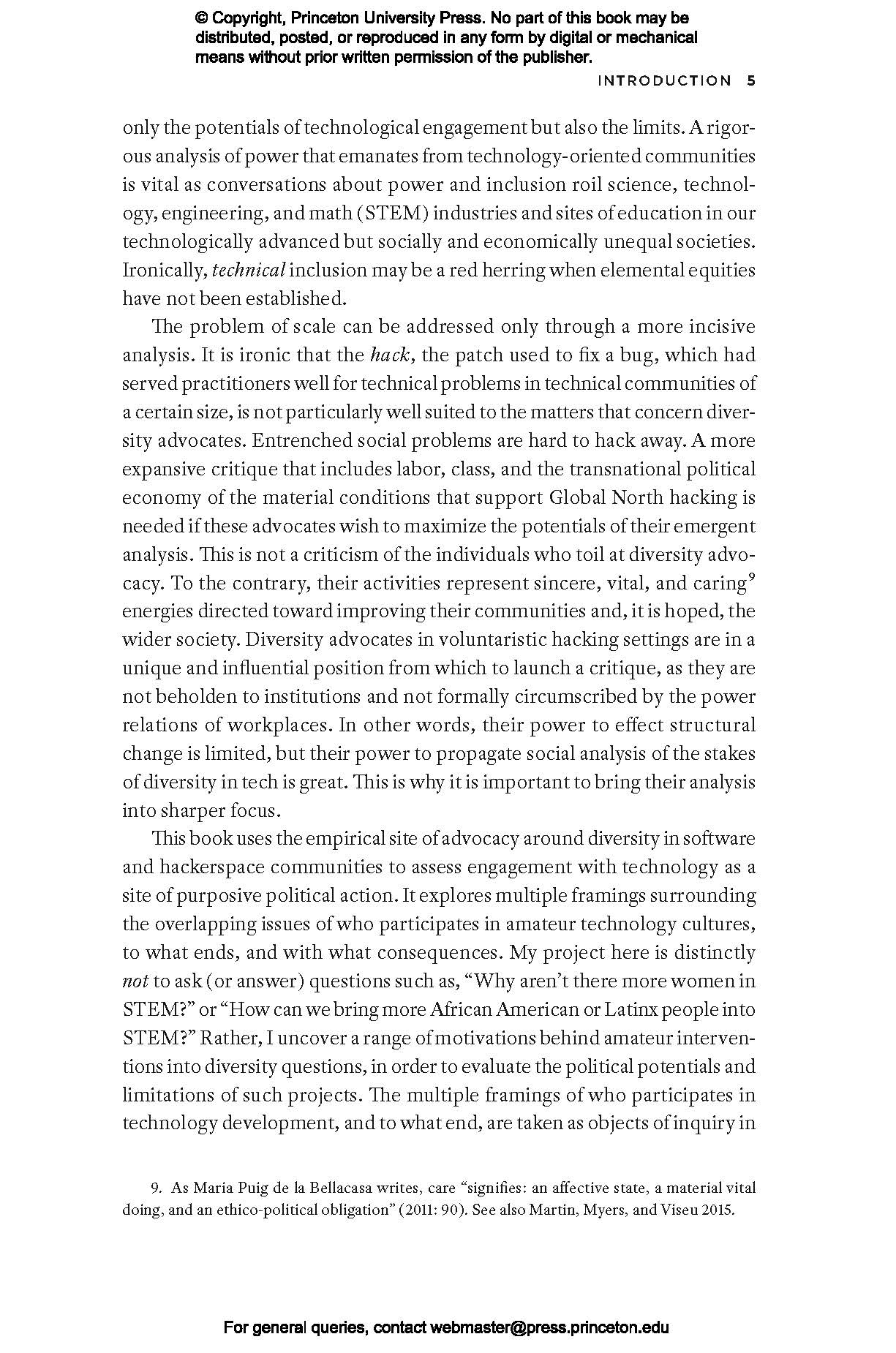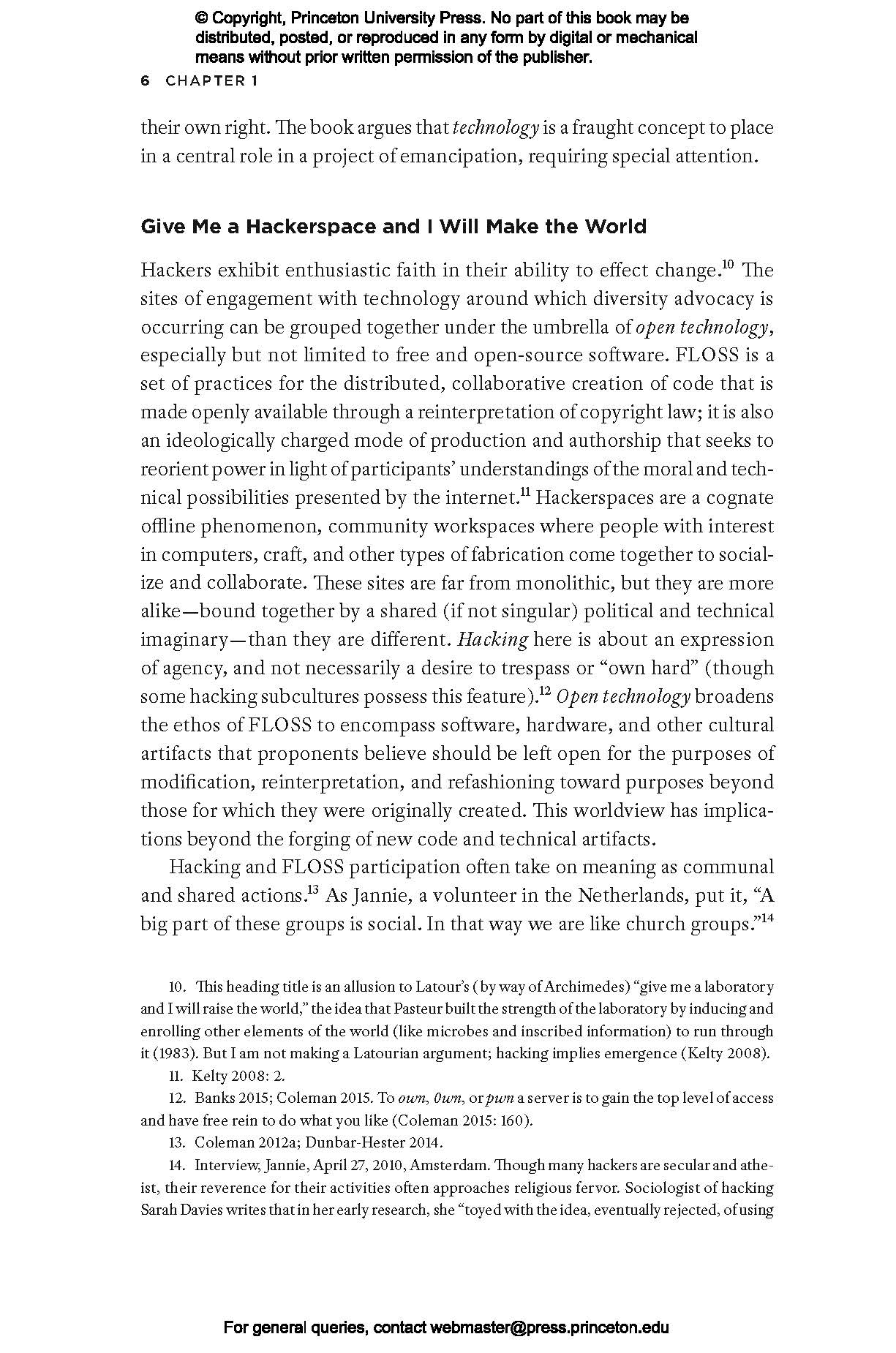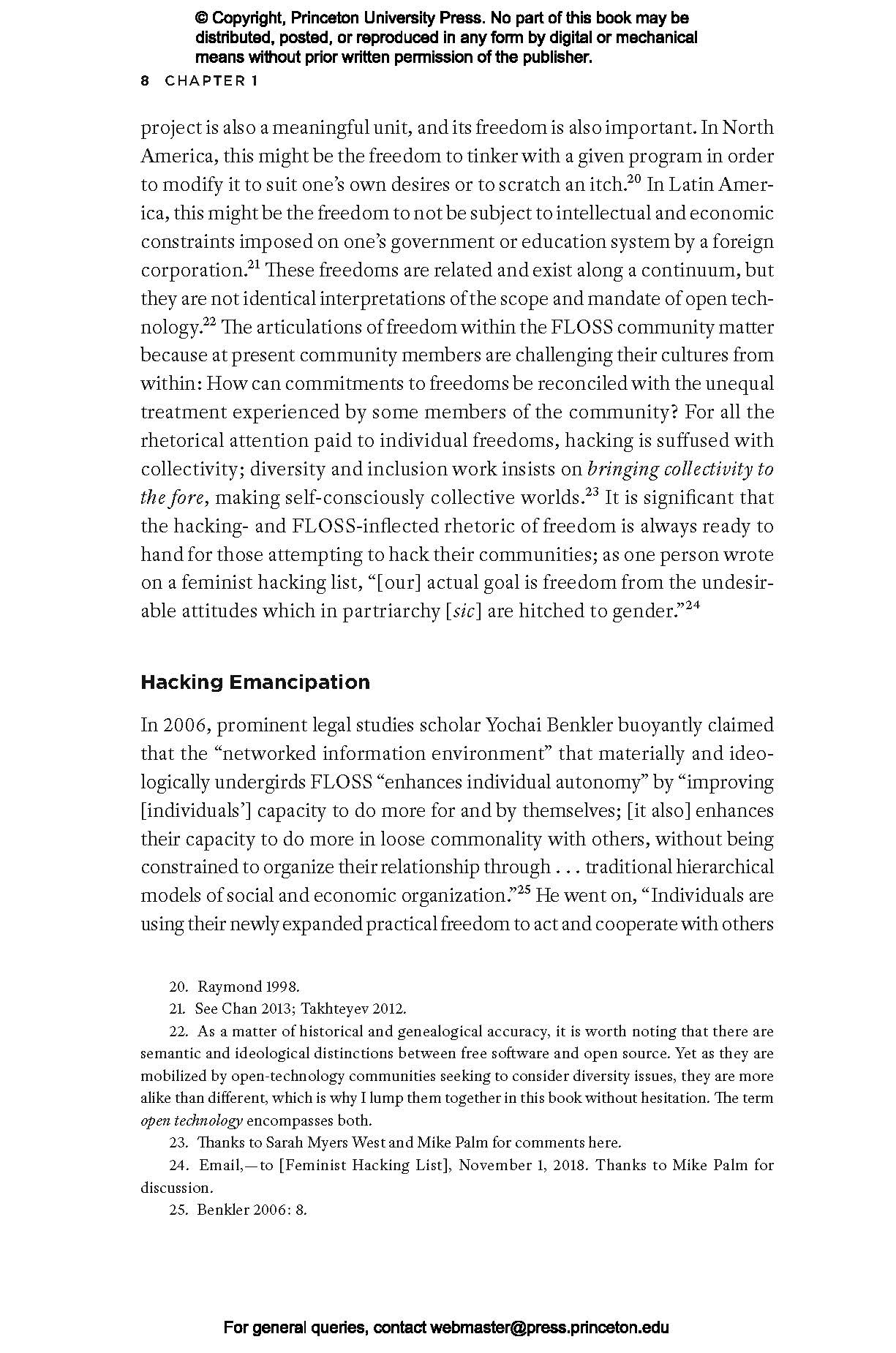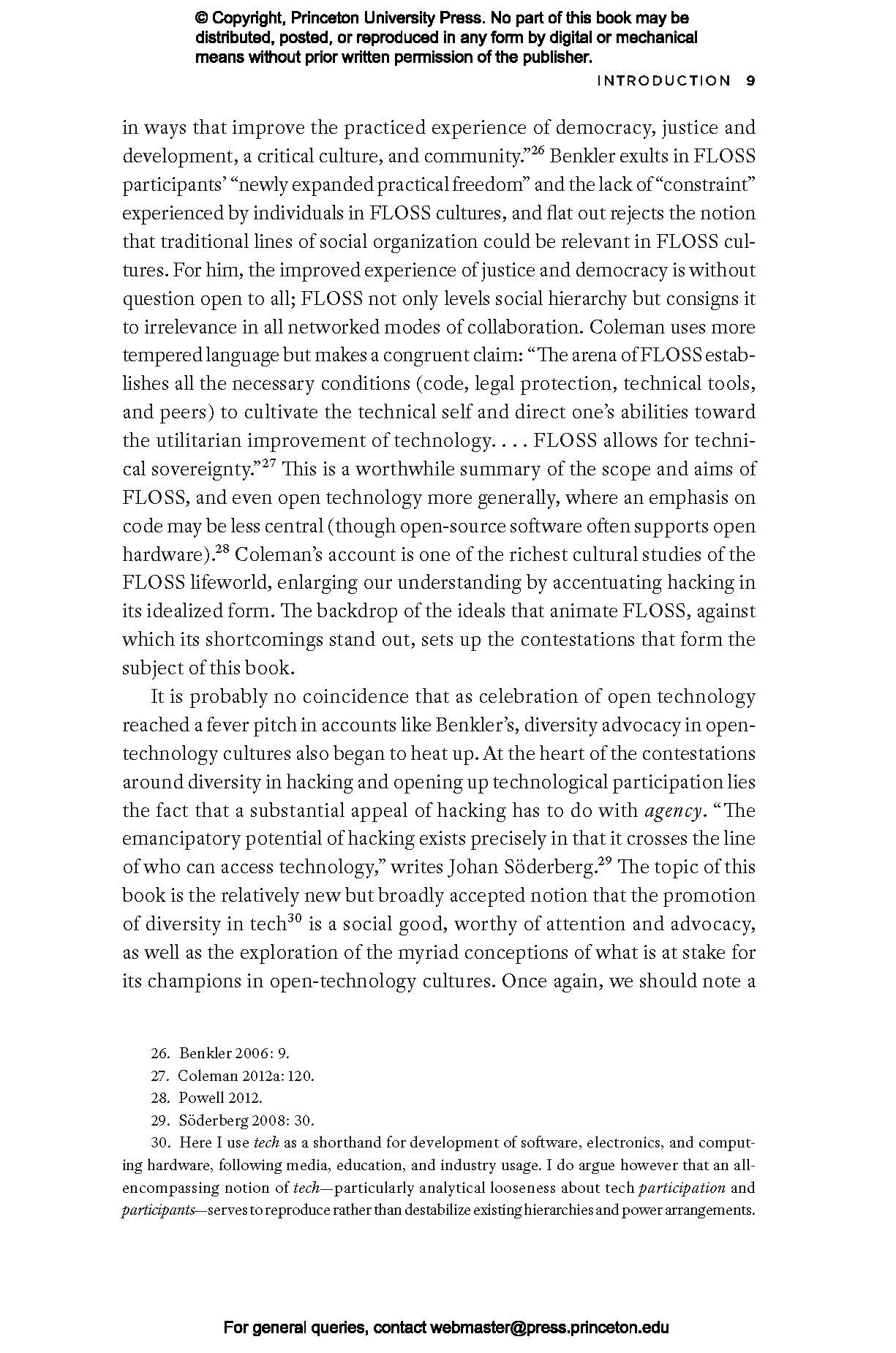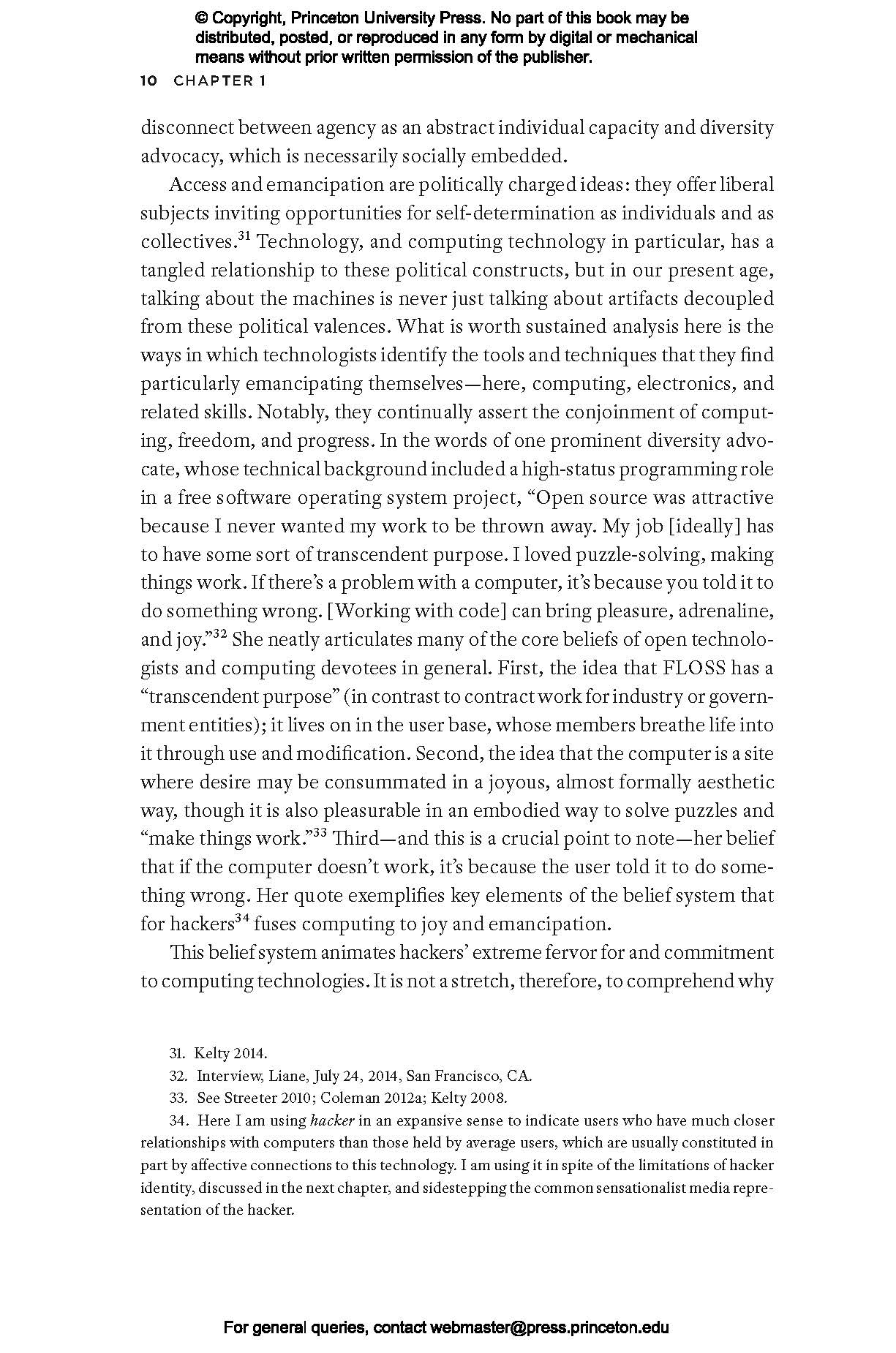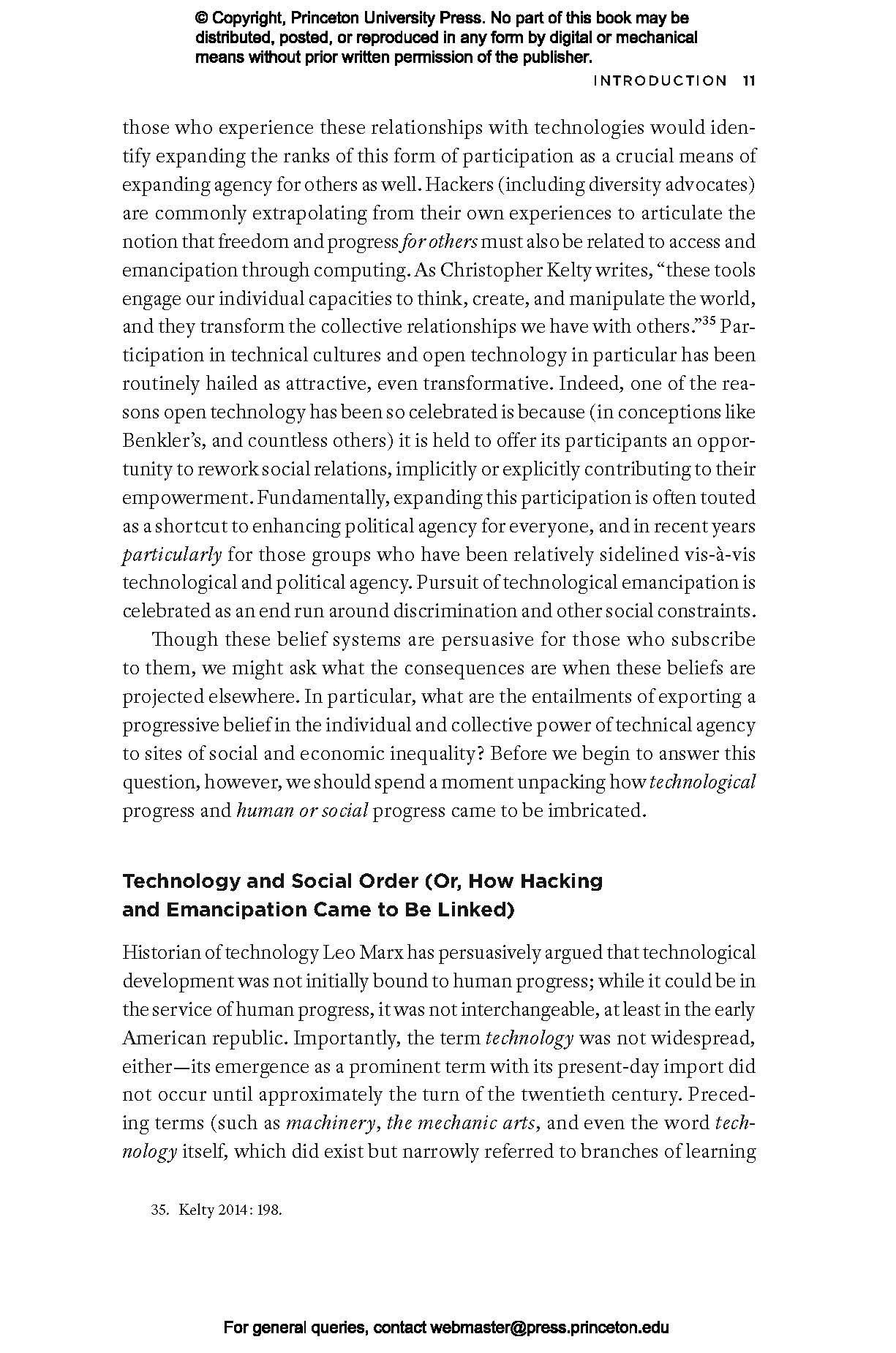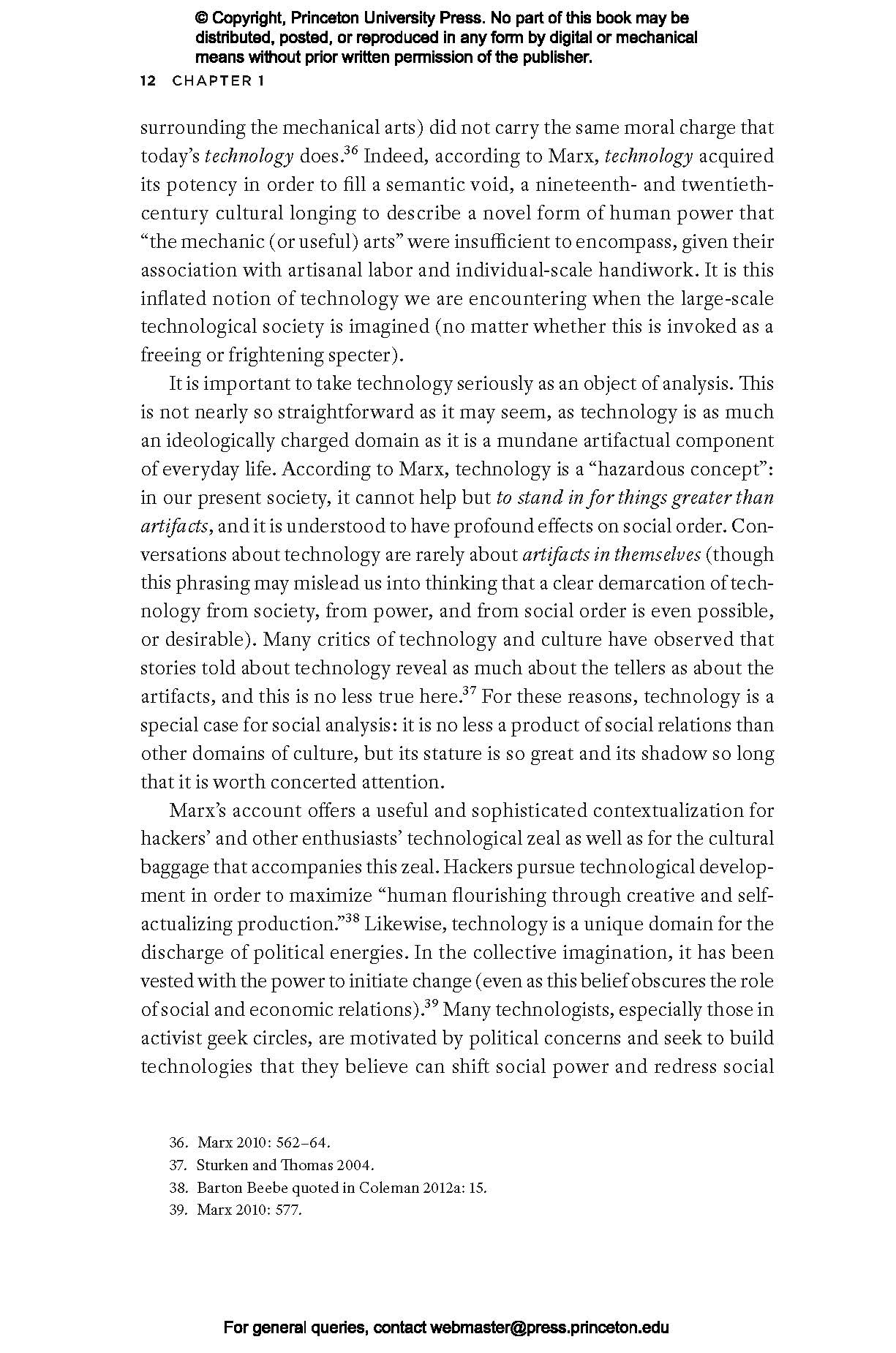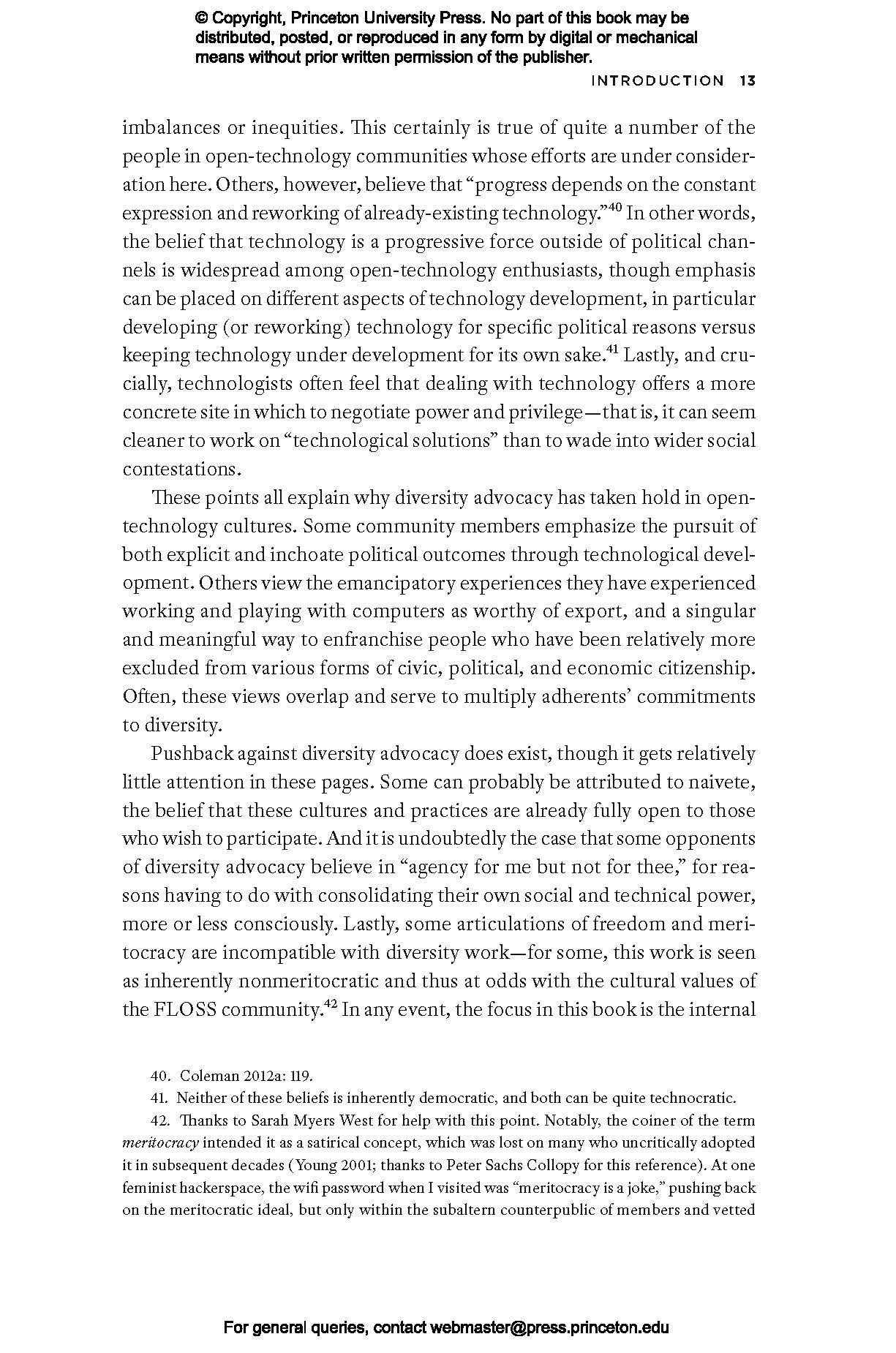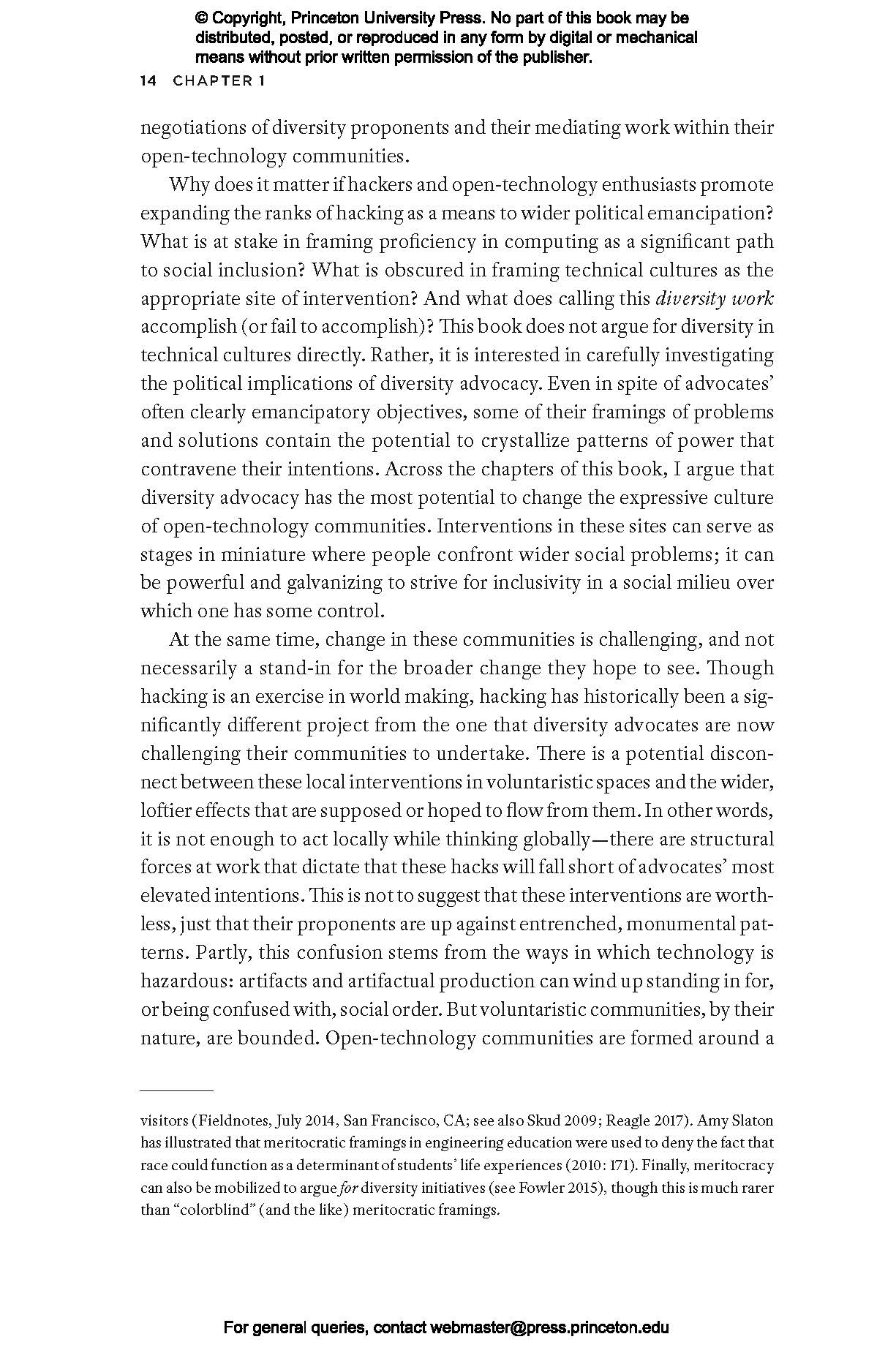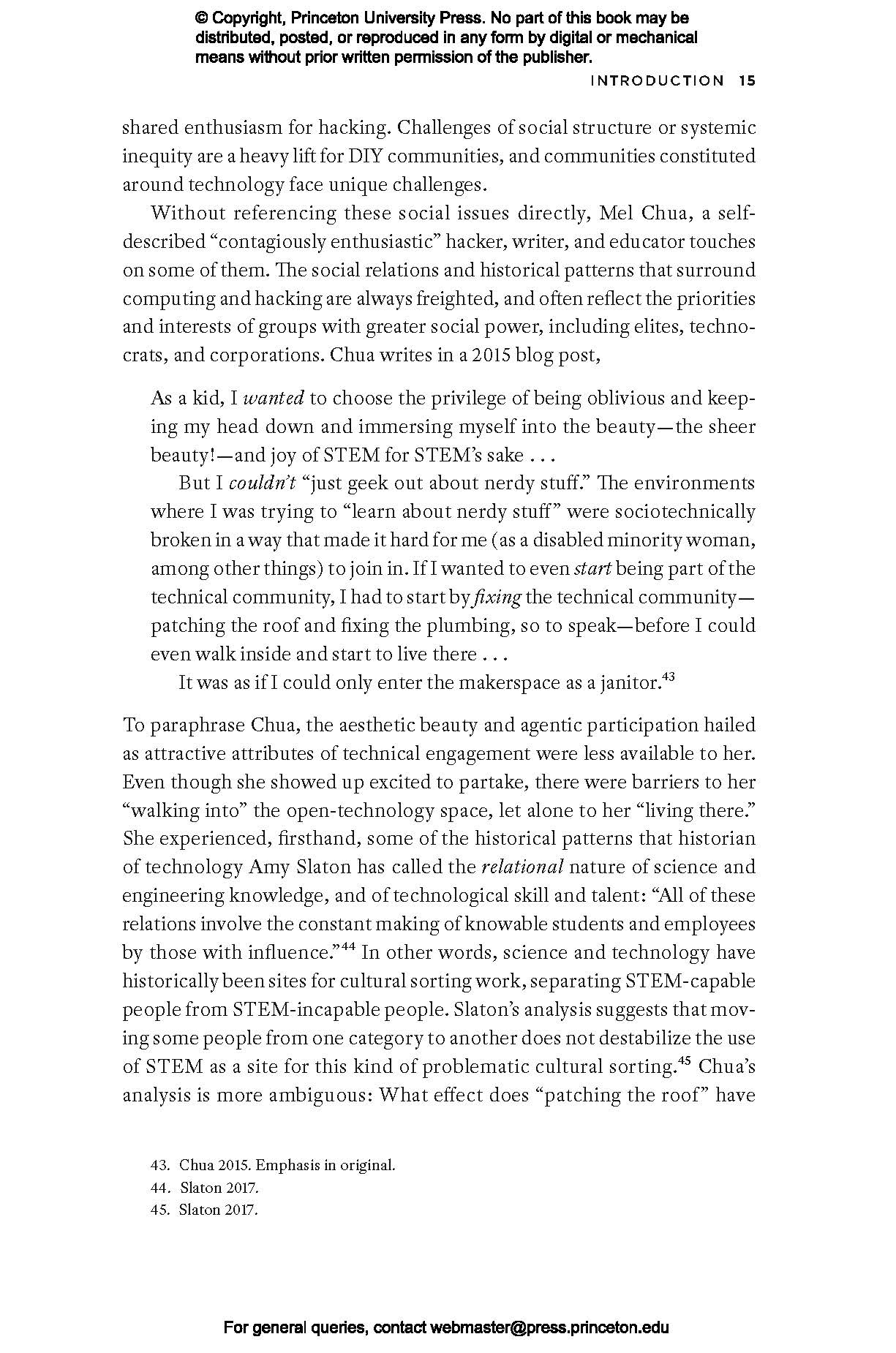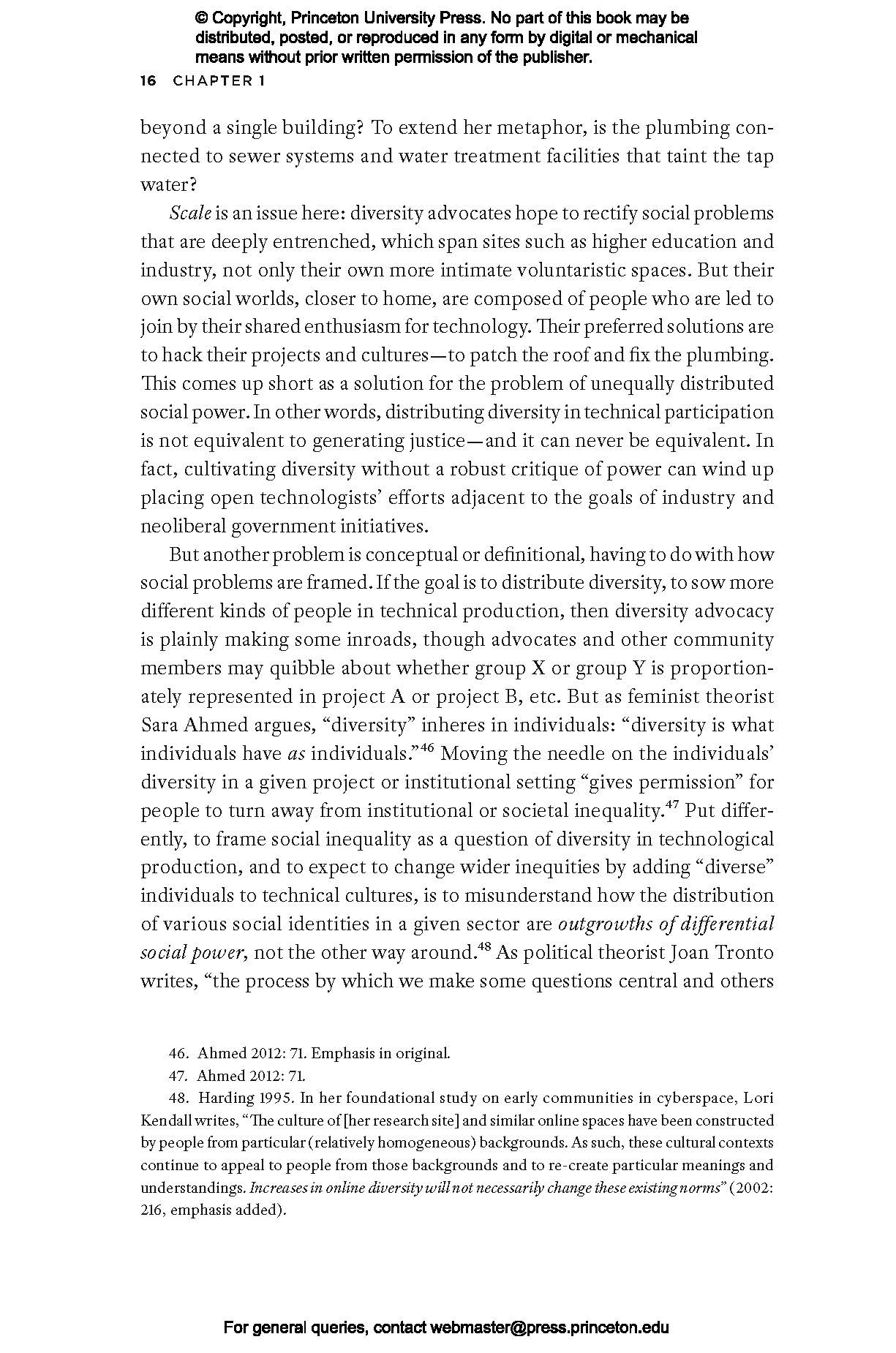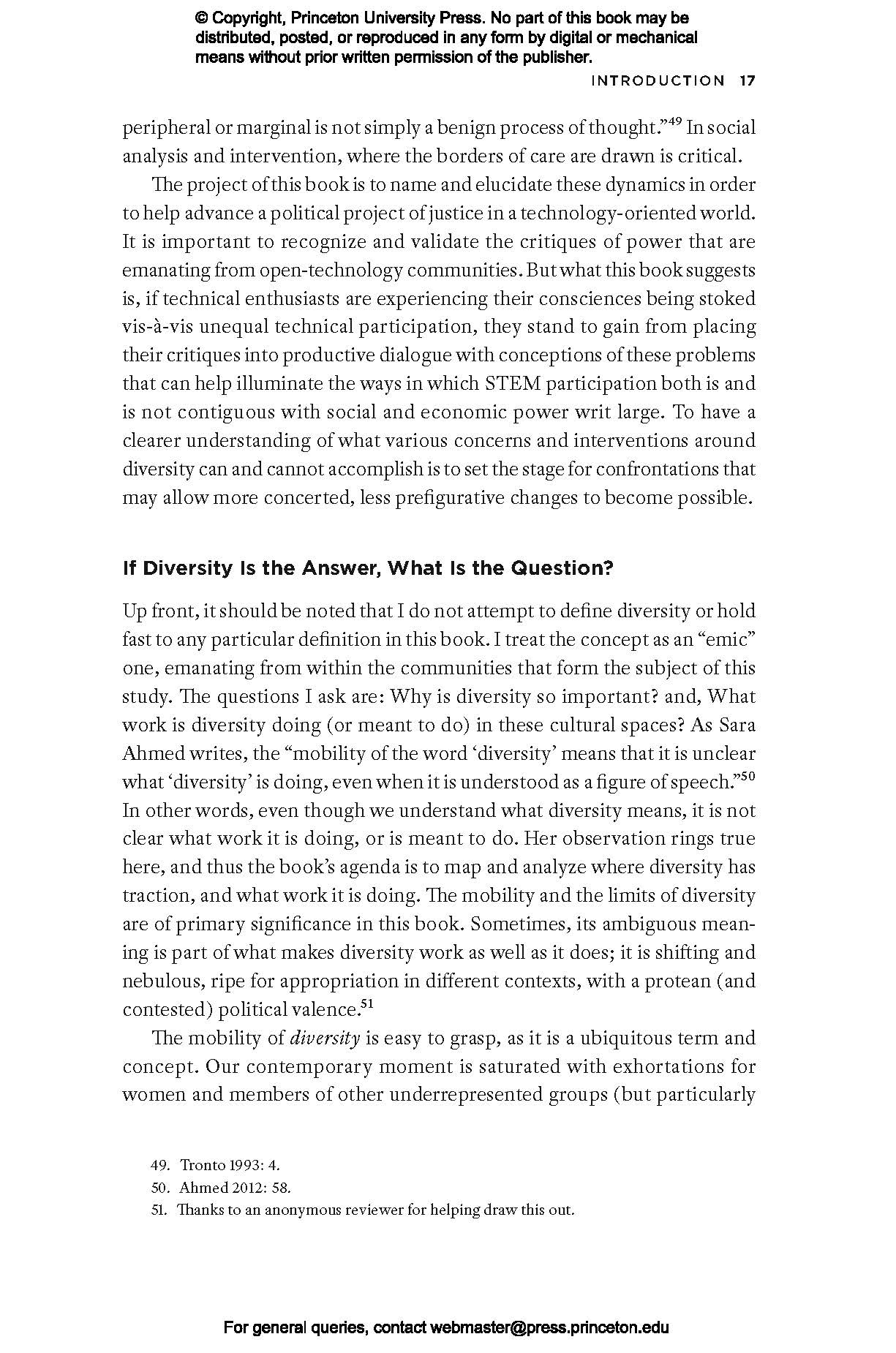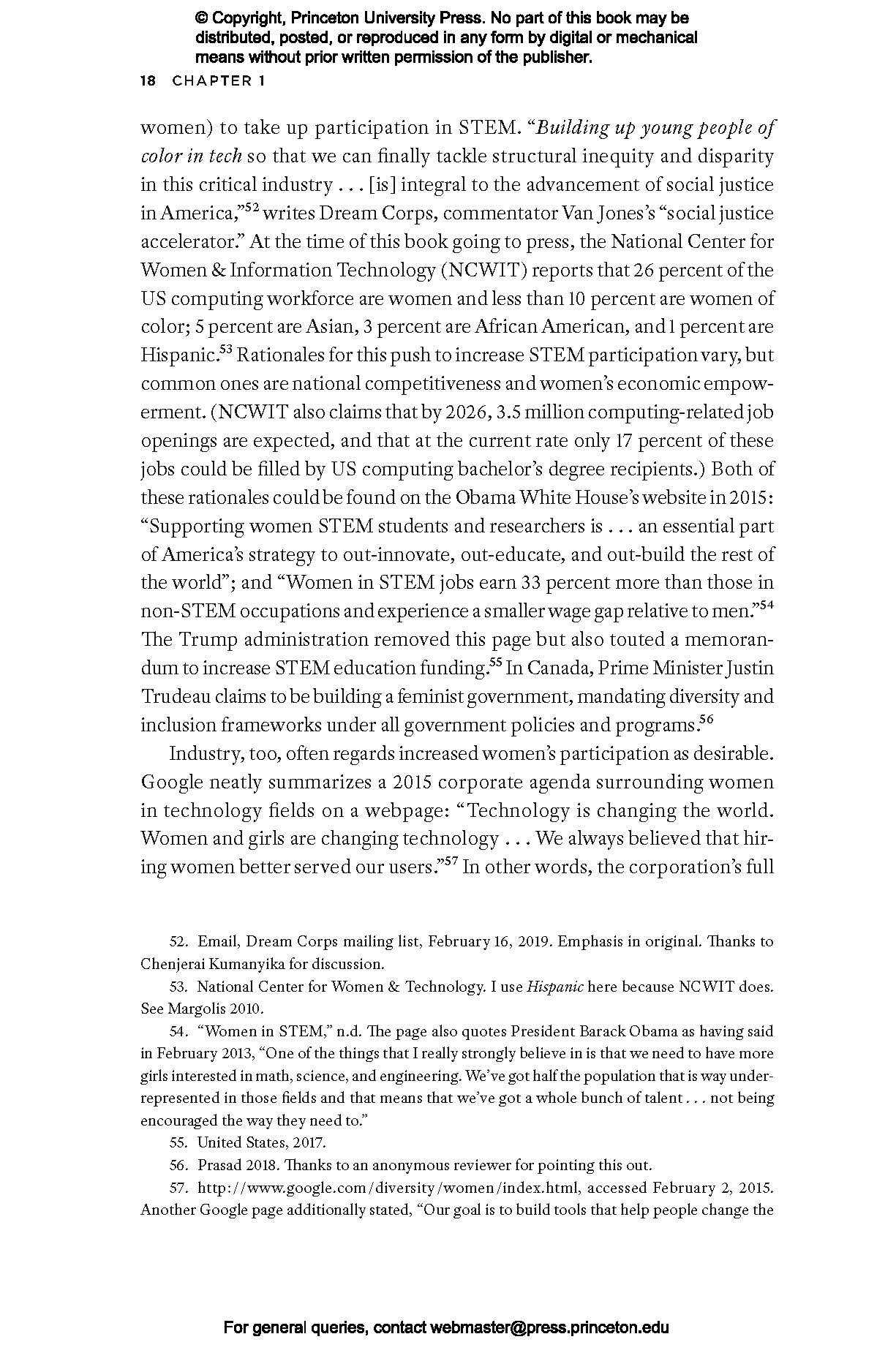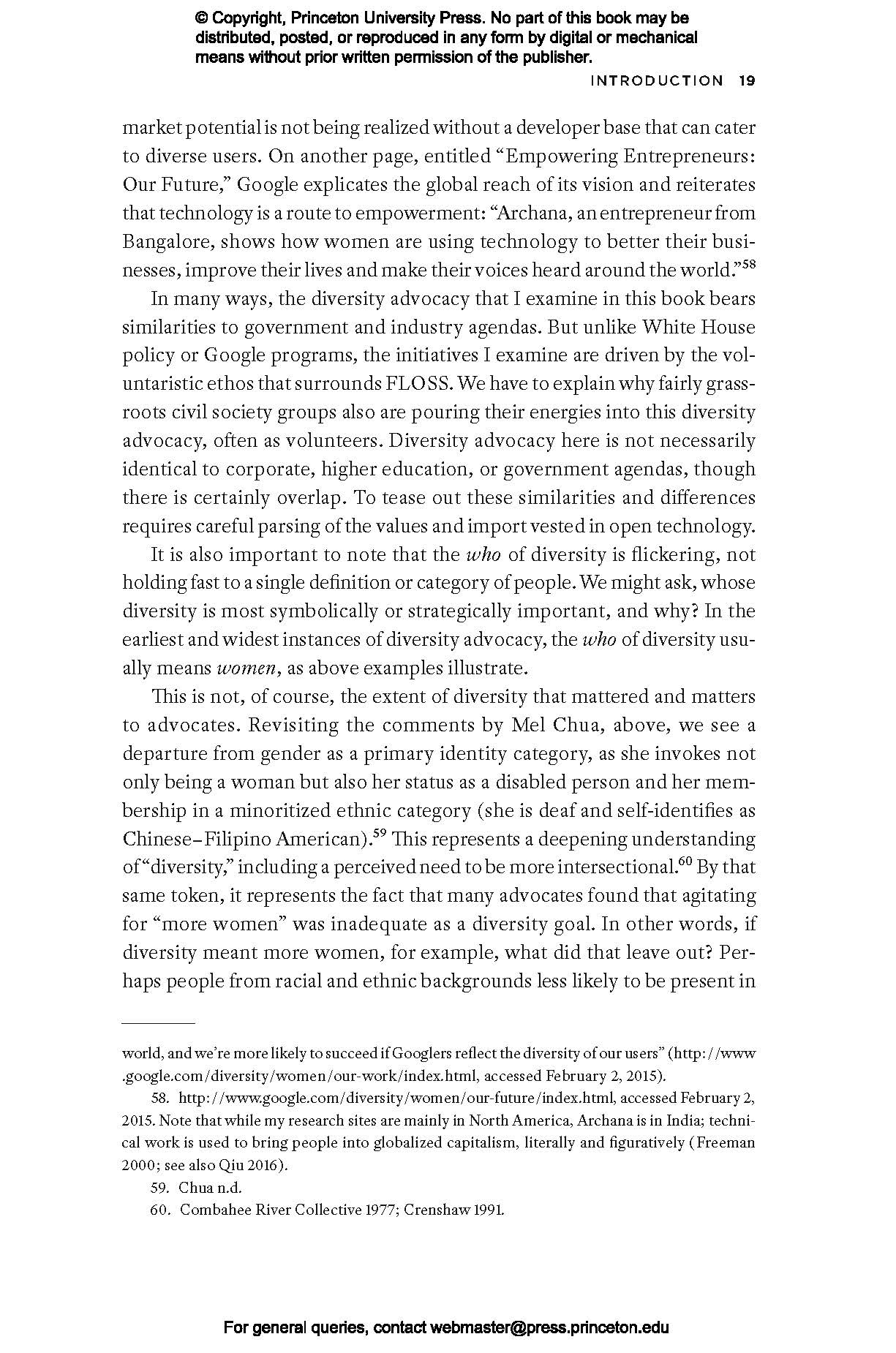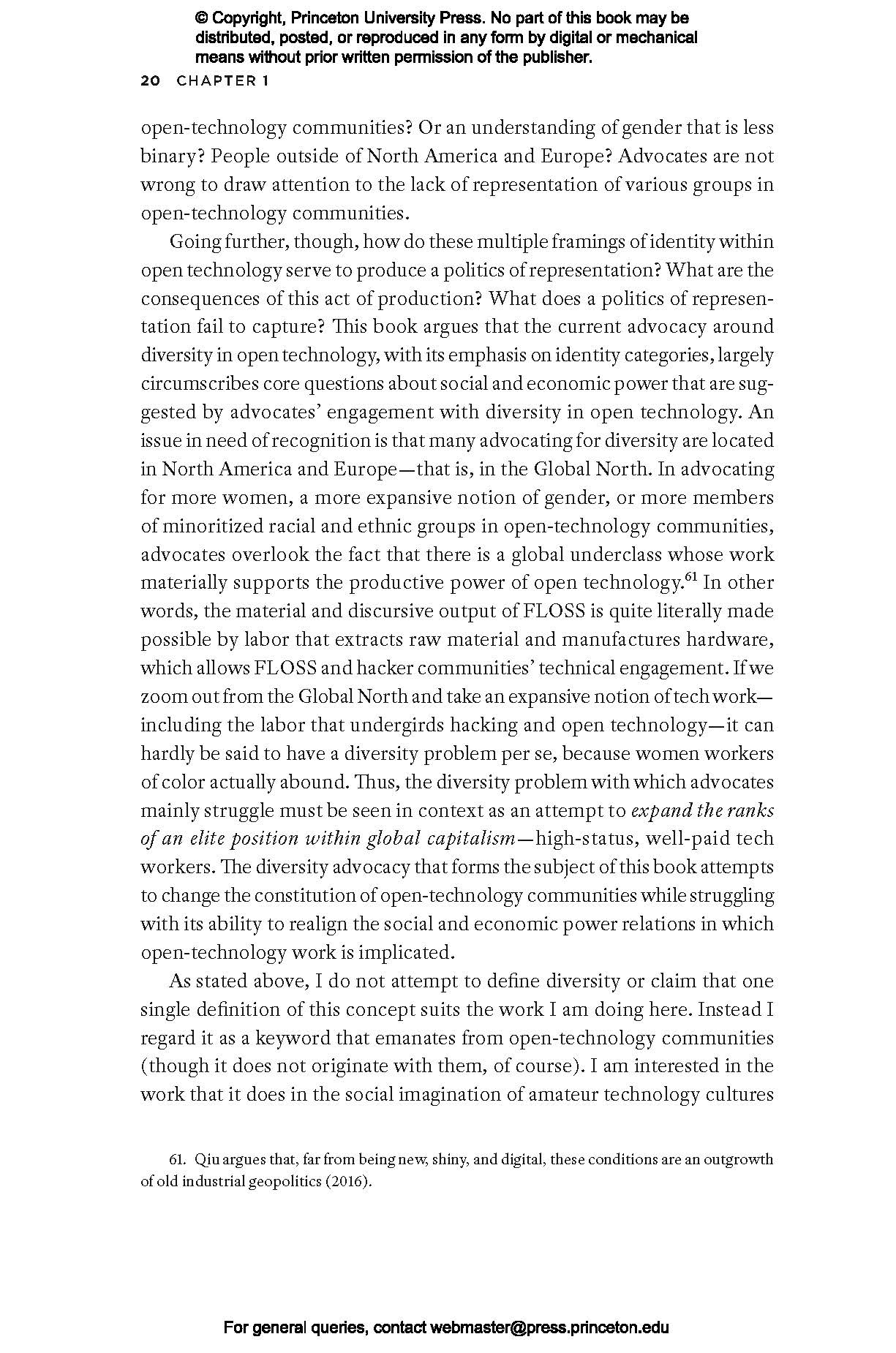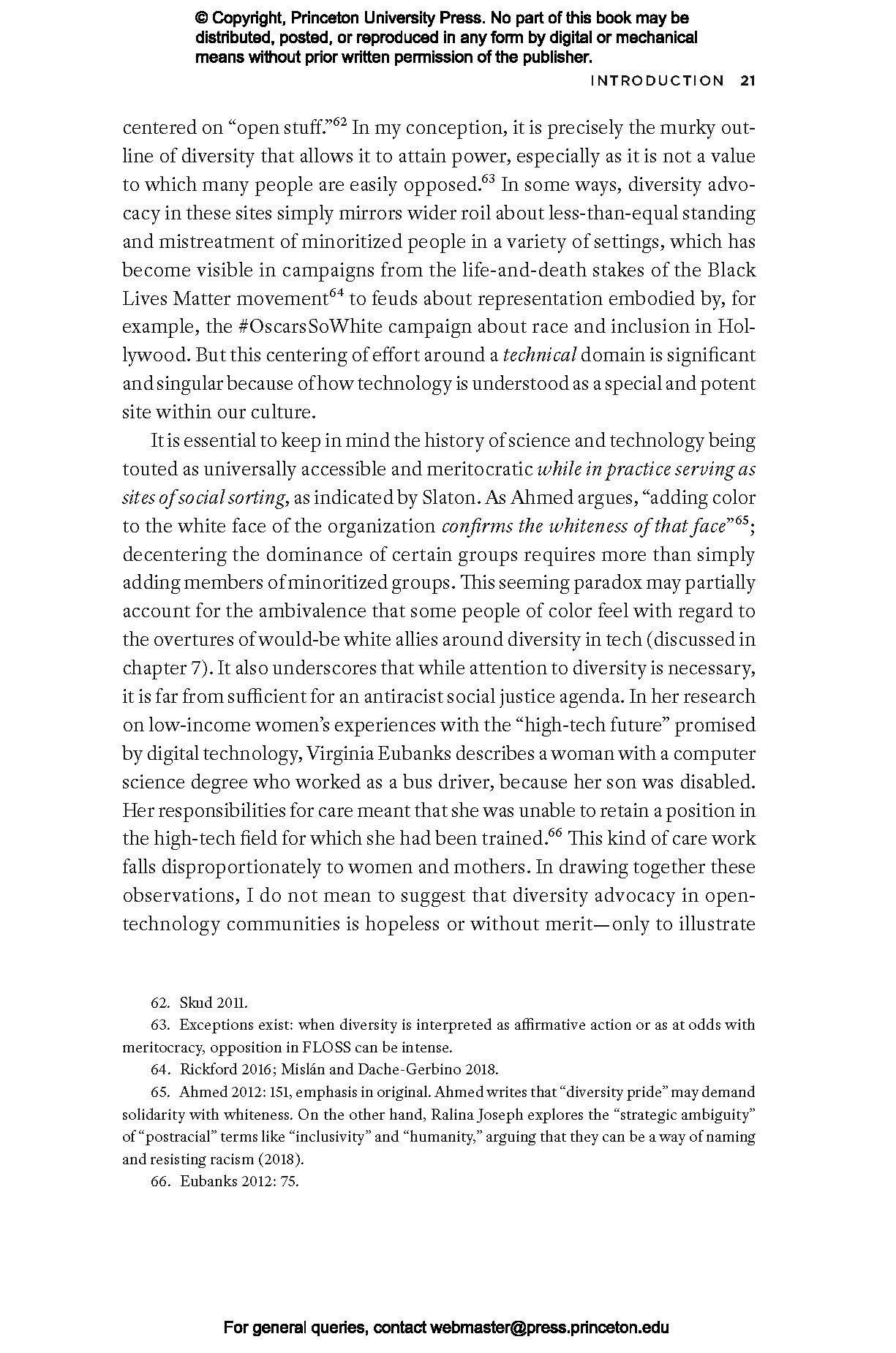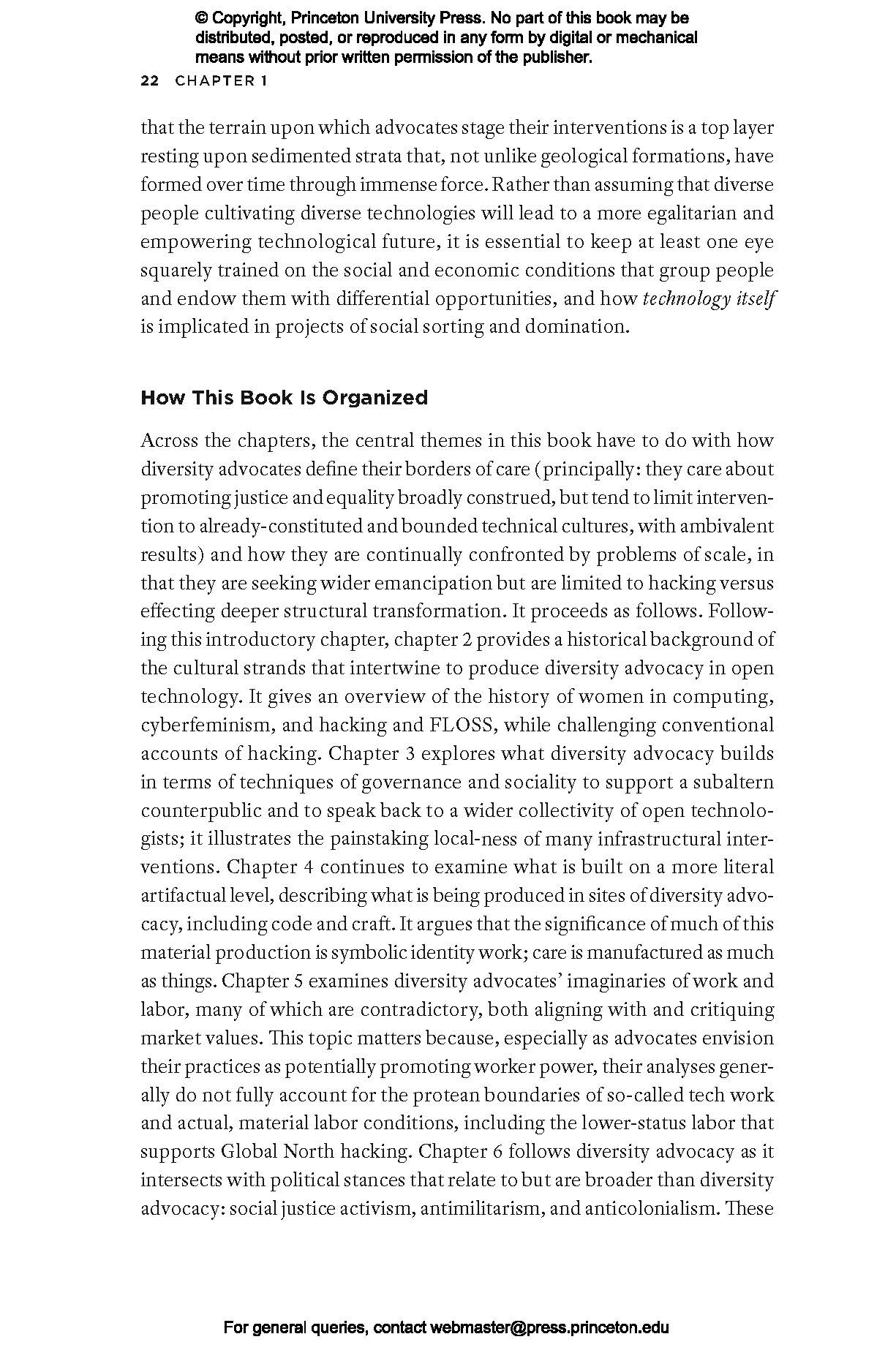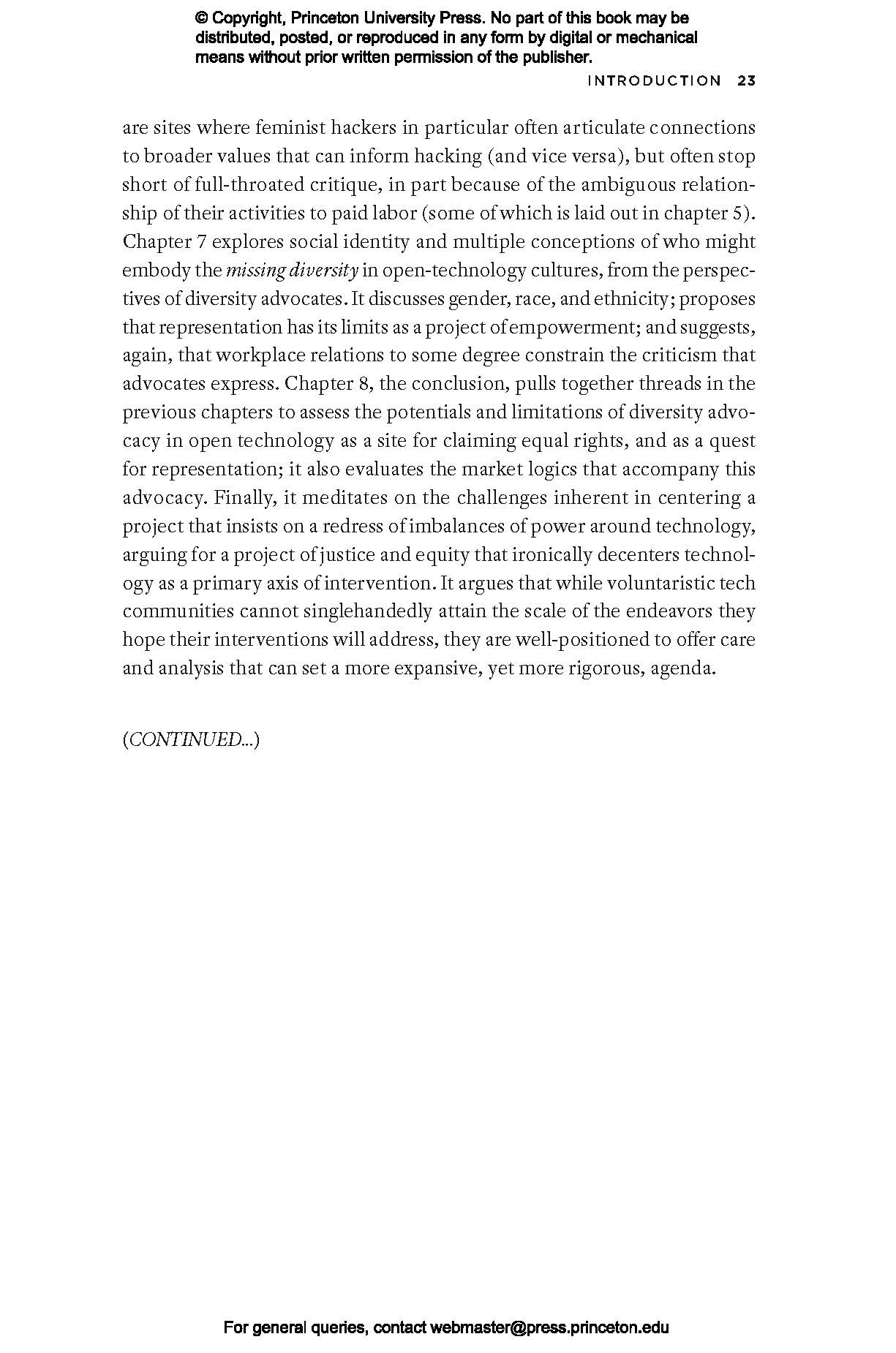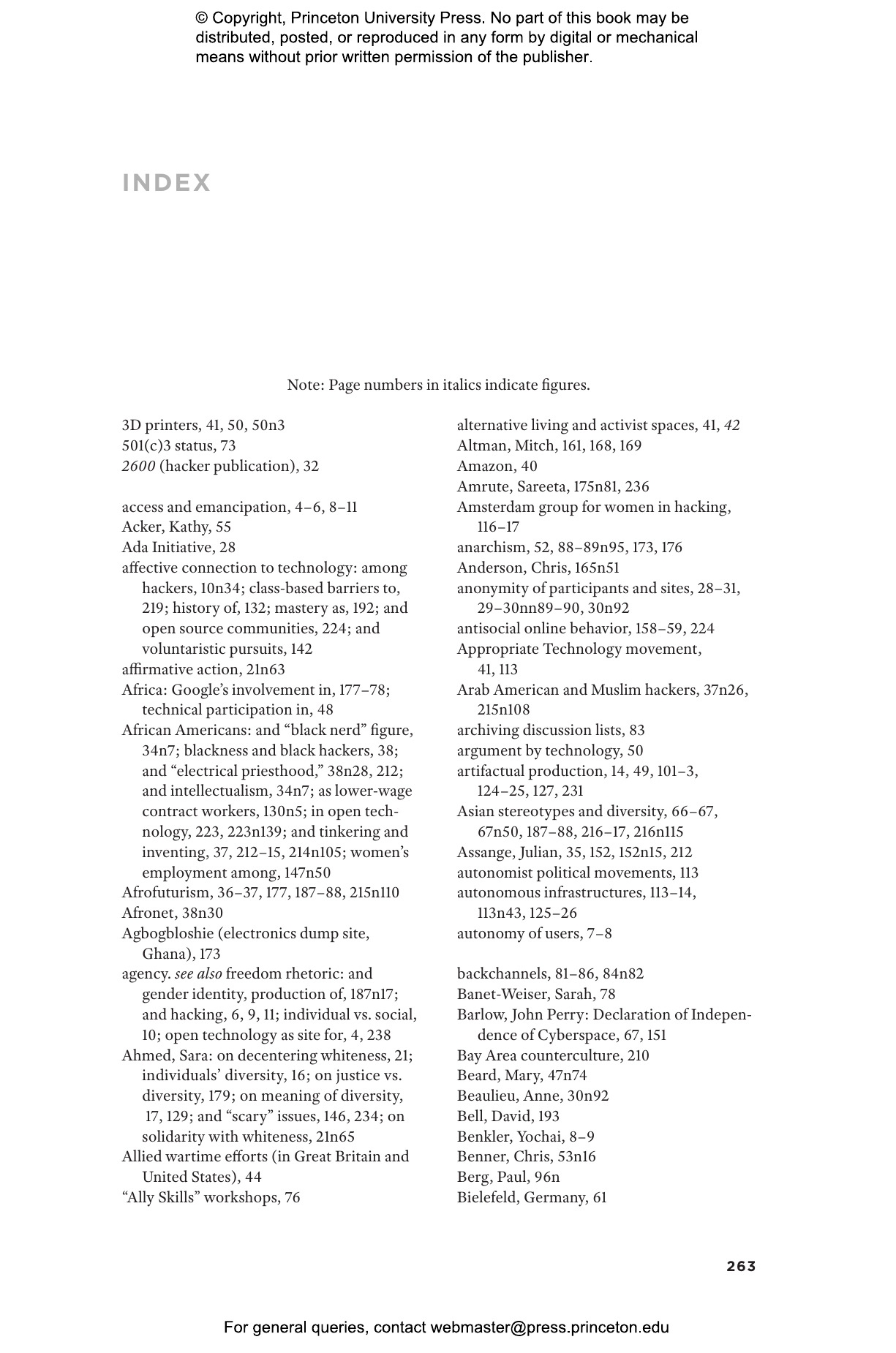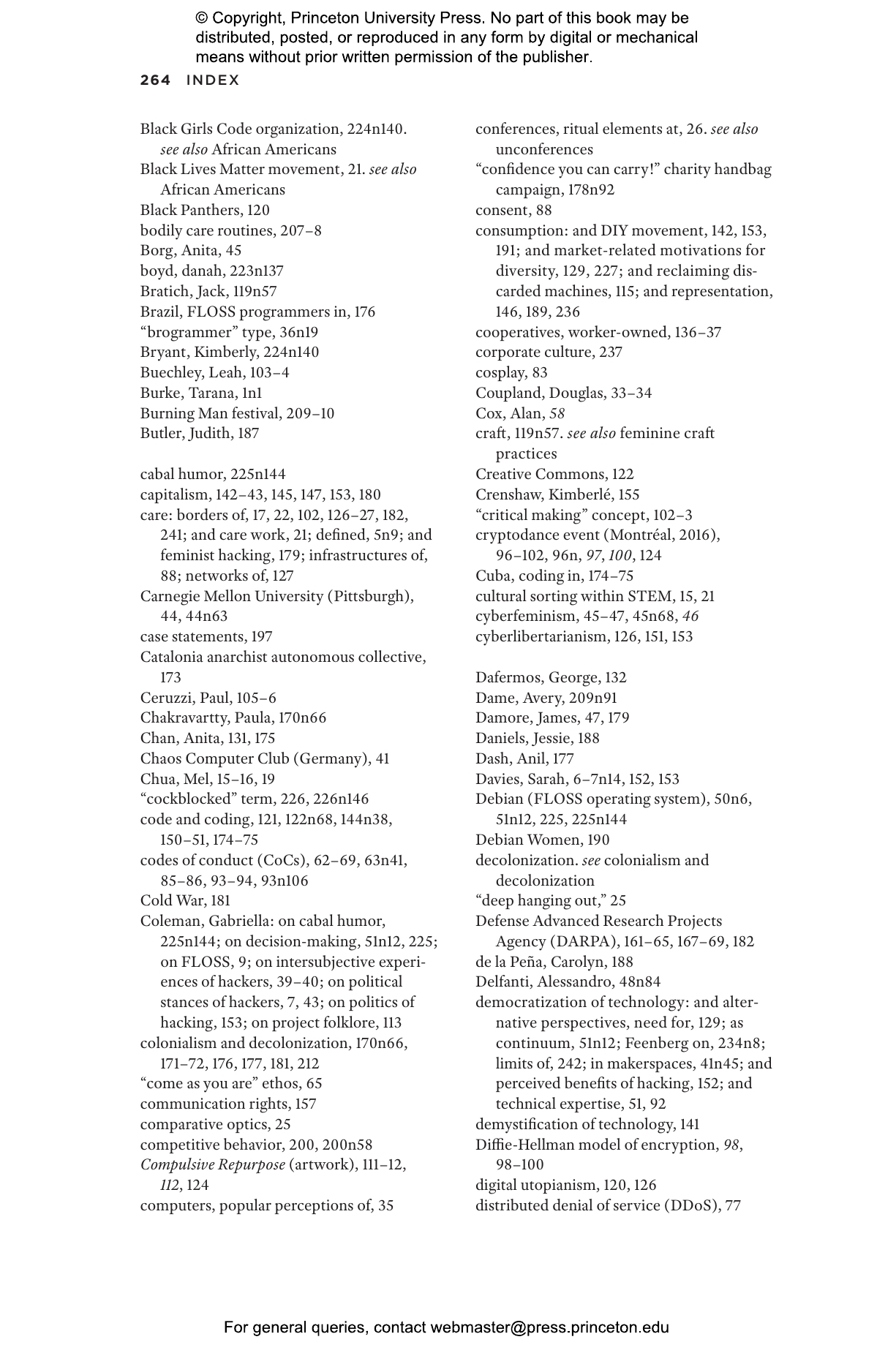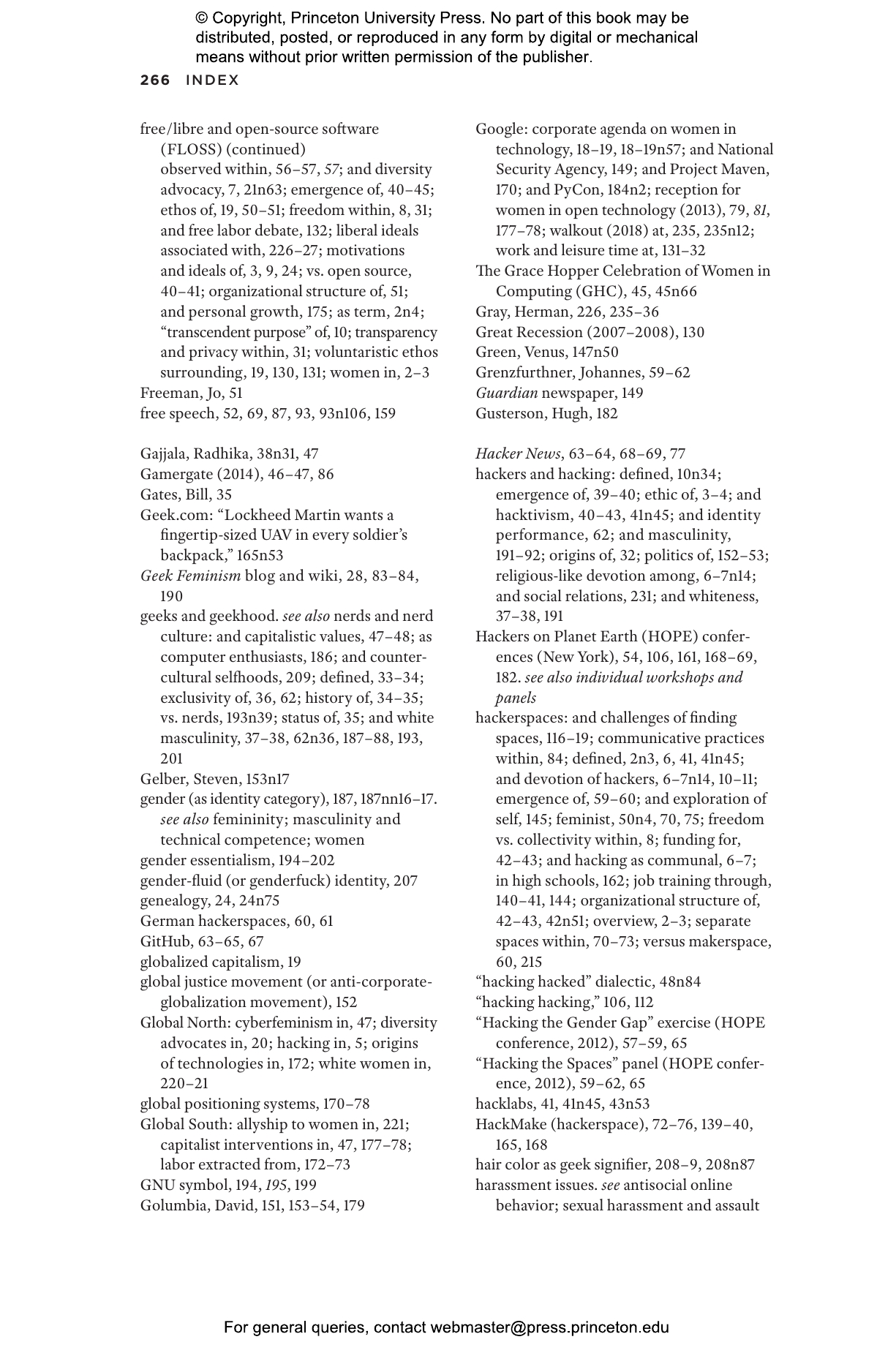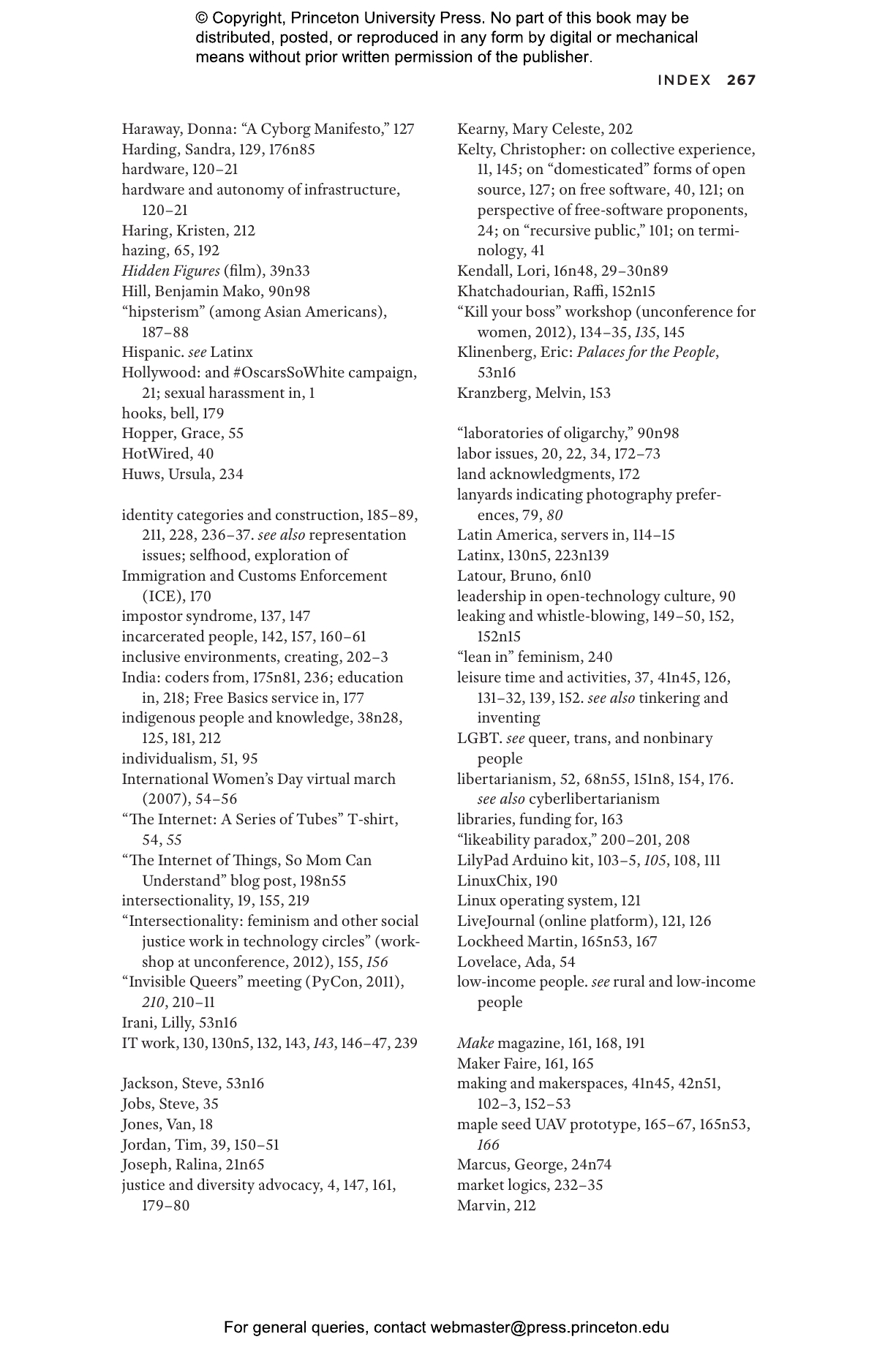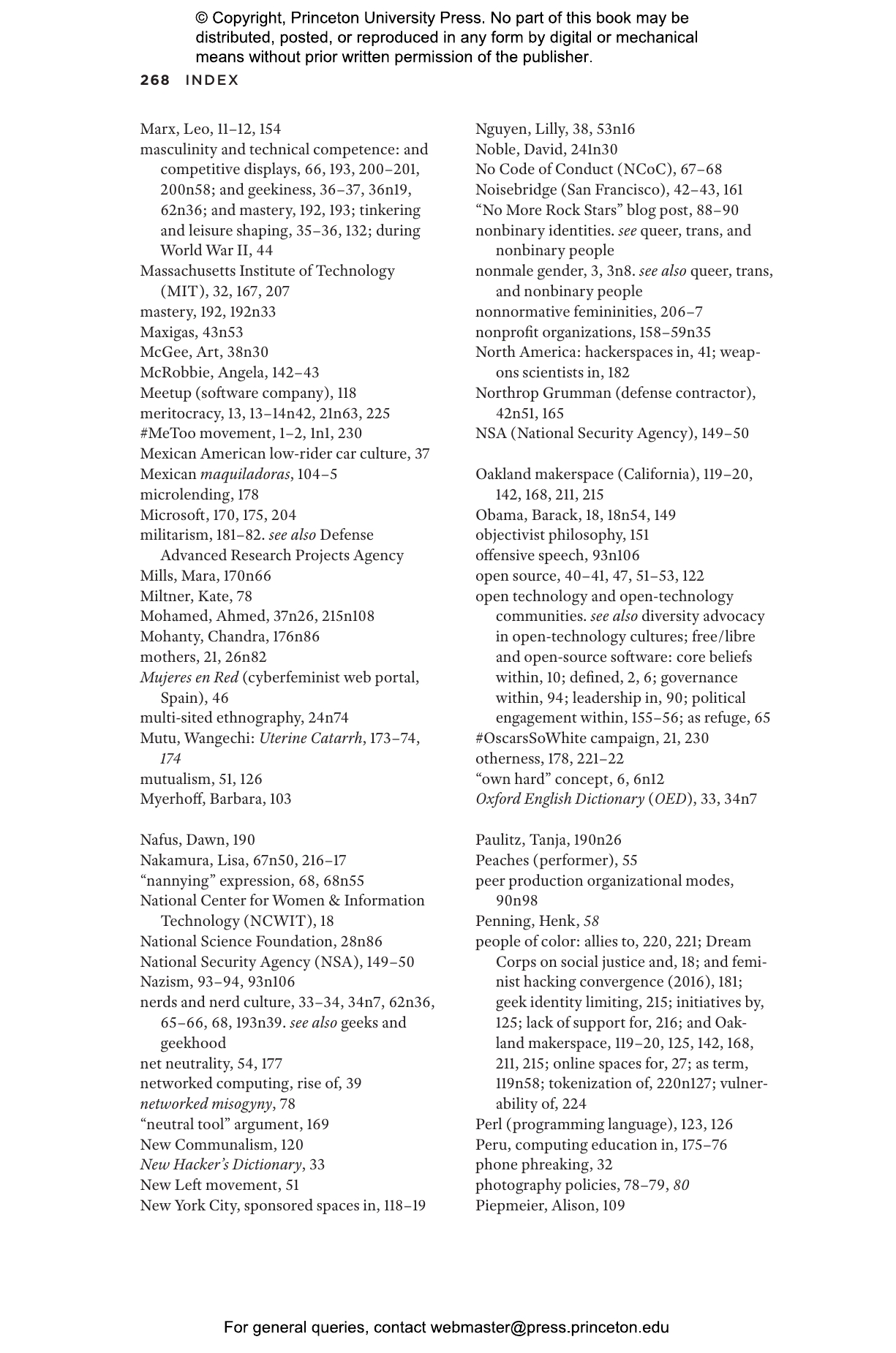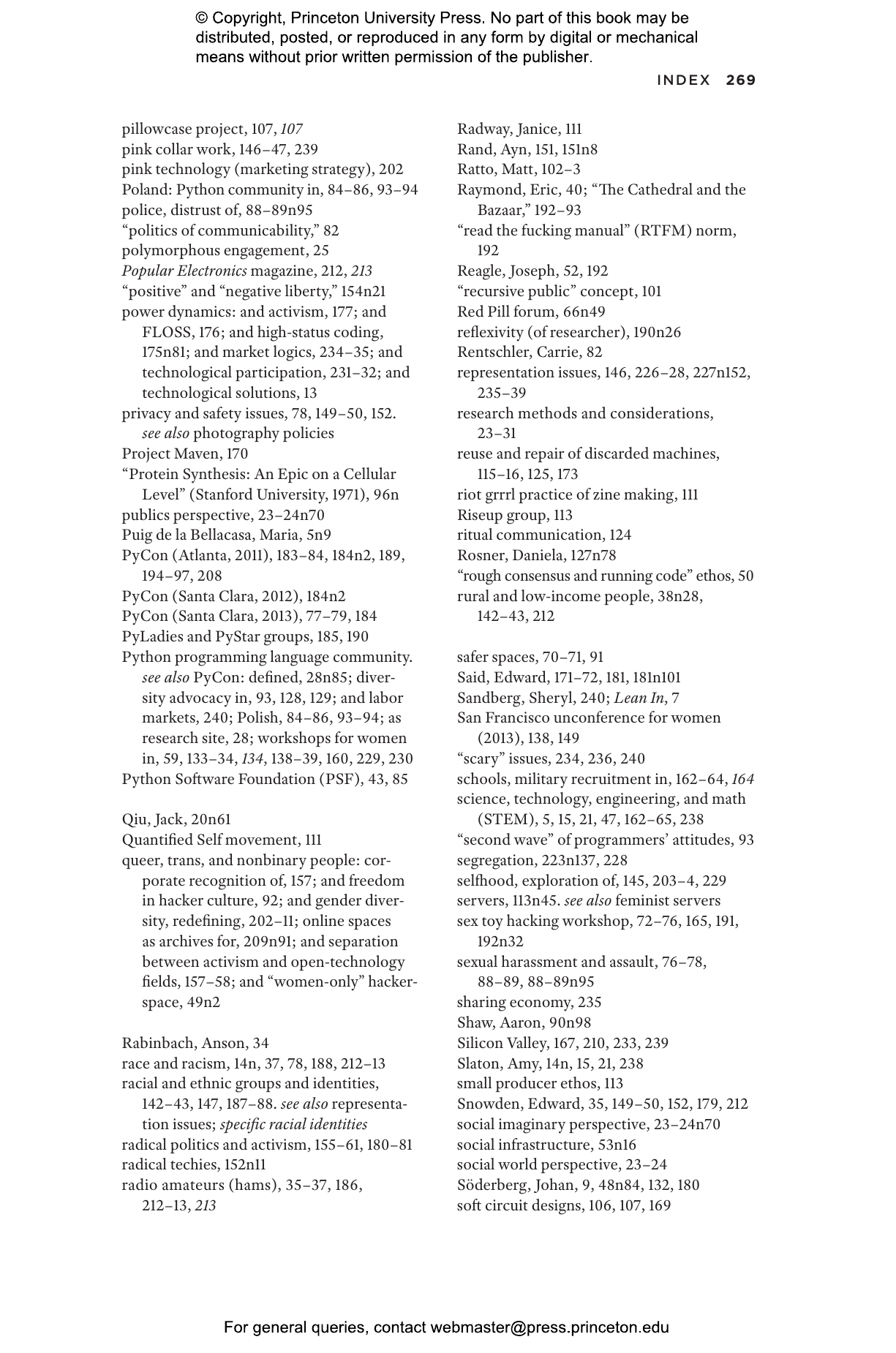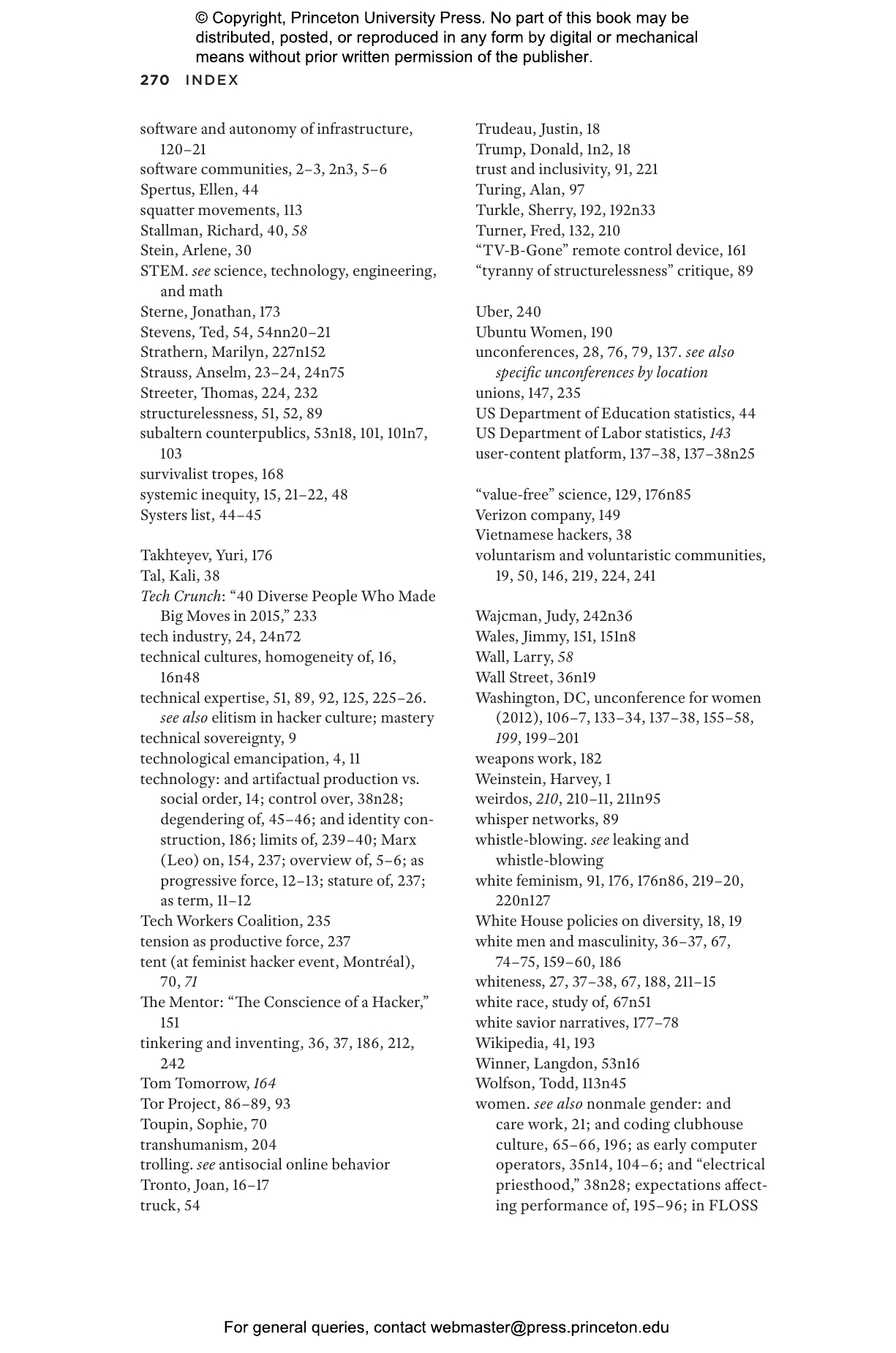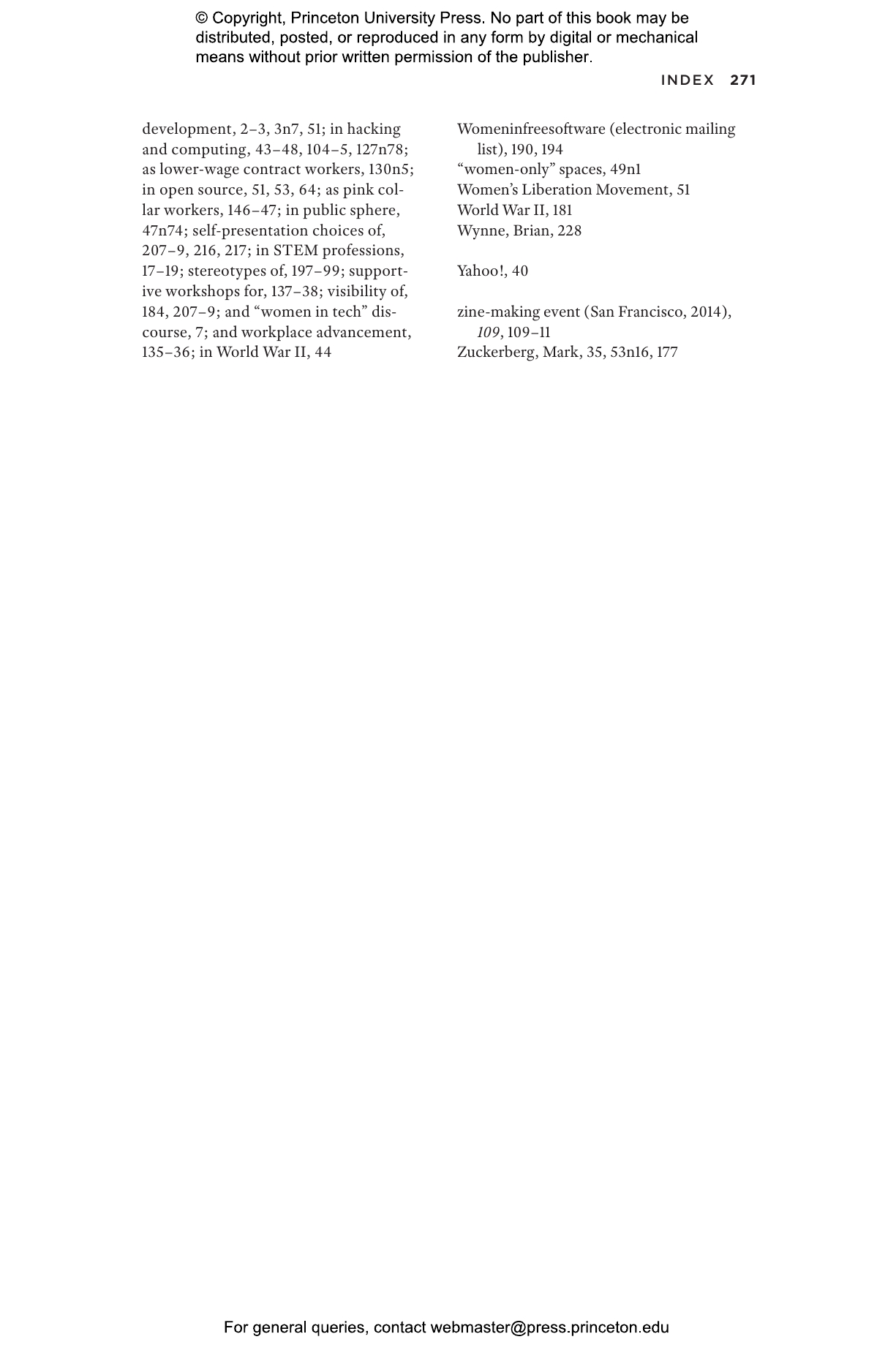Hacking, as a mode of technical and cultural production, is commonly celebrated for its extraordinary freedoms of creation and circulation. Yet surprisingly few women participate in it: rates of involvement by technologically skilled women are drastically lower in hacking communities than in industry and academia. Hacking Diversity investigates the activists engaged in free and open-source software to understand why, despite their efforts, they fail to achieve the diversity that their ideals support.
Christina Dunbar-Hester shows that within this well-meaning volunteer world, beyond the sway of human resource departments and equal opportunity legislation, members of underrepresented groups face unique challenges. She brings together more than five years of firsthand research: attending software conferences and training events, working on message boards and listservs, and frequenting North American hackerspaces. She explores who participates in voluntaristic technology cultures, to what ends, and with what consequences. Digging deep into the fundamental assumptions underpinning STEM-oriented societies, Dunbar-Hester demonstrates that while the preferred solutions of tech enthusiasts—their “hacks” of projects and cultures—can ameliorate some of the “bugs” within their own communities, these methods come up short for issues of unequal social and economic power. Distributing “diversity” in technical production is not equal to generating justice.
Hacking Diversity reframes questions of diversity advocacy to consider what interventions might appropriately broaden inclusion and participation in the hacking world and beyond.
Awards and Recognition
- Winner of the ASIS&T Best Information Science Book Award, Association for Information Science and Technology
- Finalist for the Rachel Carson Prize, Society for Social Studies of Science
"[Dunbar-Hester's] conclusions are refreshingly universal and her insights will be valuable to many people seeking to make their industries more diverse and inclusive."—Lady Science
"Dunbar-Hester notes that diverse hacking efforts in open technology communities have made some progress toward creating more inclusive environments. But these efforts remain limited in their approach and conflate technological participation with the social power that is an outgrowth of it. Framing diversity in open technology communities as a problem of representation is convenient and does produce some morally good outcomes."—Jenna P. Carpenter, IEEE Technology and Society Magazine
"An innovative and valuable work . . . Dunbar-Hester’s qualitative exploration can serve as a rich foundation for further investigation into the dynamics of intersectional communities, justice work, and technology studies."—Rowan McMullen Cheng, Information, Communication, & Society
"Hacking Diversity takes us into the hackerspaces, makerspaces, and unconferences where diversity advocates hack their social order to open up volunteer technologies along multiple dimensions. Dunbar-Hester shows that much more than 'stuff' is produced—issues of gender, race, power, and class emerge and are interrogated. This is essential reading for anyone wanting to understand how diversity becomes productive in open technology movements and corporate tech cultures."—Sareeta Amrute, University of Washington
"This book provides a clear-eyed critical exploration of diversity advocacy within today's market-saturated culture of open technology, fractured by the sediments of racial capitalism. Dunbar-Hester brilliantly combines historical analysis with ethnographic insights to show why DIY interventions by voluntaristic open technologists and computing devotees, however well-meaning, struggle to resolve the foundational tensions between individual freedom and collective emancipation."—Paula Chakravartty, New York University
"Written with grace, clarity, and generosity, Hacking Diversity critically probes inclusion initiatives in open content and hacker communities. Giving credit where it is due, Dunbar-Hester shows how diversity advocacy engendered laudable changes that nevertheless have fallen short of securing substantive equity and justice. This widely relevant book will become central to reorienting the public debate around diversity in technology."—Gabriella Coleman, McGill University
"Unraveling threads of identity, open technology, and activism over the past decade, Hacking Diversity sympathetically but critically analyzes the daily life, utopian desires, and critical awareness of participants in hackerspaces, free software communities, maker movements, and activist tech collectives. Dunbar-Hester reveals the poignant tensions at work in communities struggling to address problems of global political inequality with new technologies and practices that promise liberation—but all too rarely deliver it."—Christopher M. Kelty, University of California, Los Angeles
"Well-written, sophisticated, theoretically limber, and often clever and humorous, Hacking Diversity unpacks the concept of diversity advocacy and how to create, nurture, and sustain feminist hacker/maker spaces. It will make an impact in feminist media studies, critical communication studies, digital activism studies, and science and technology studies."—Leslie Regan Shade, University of Toronto
